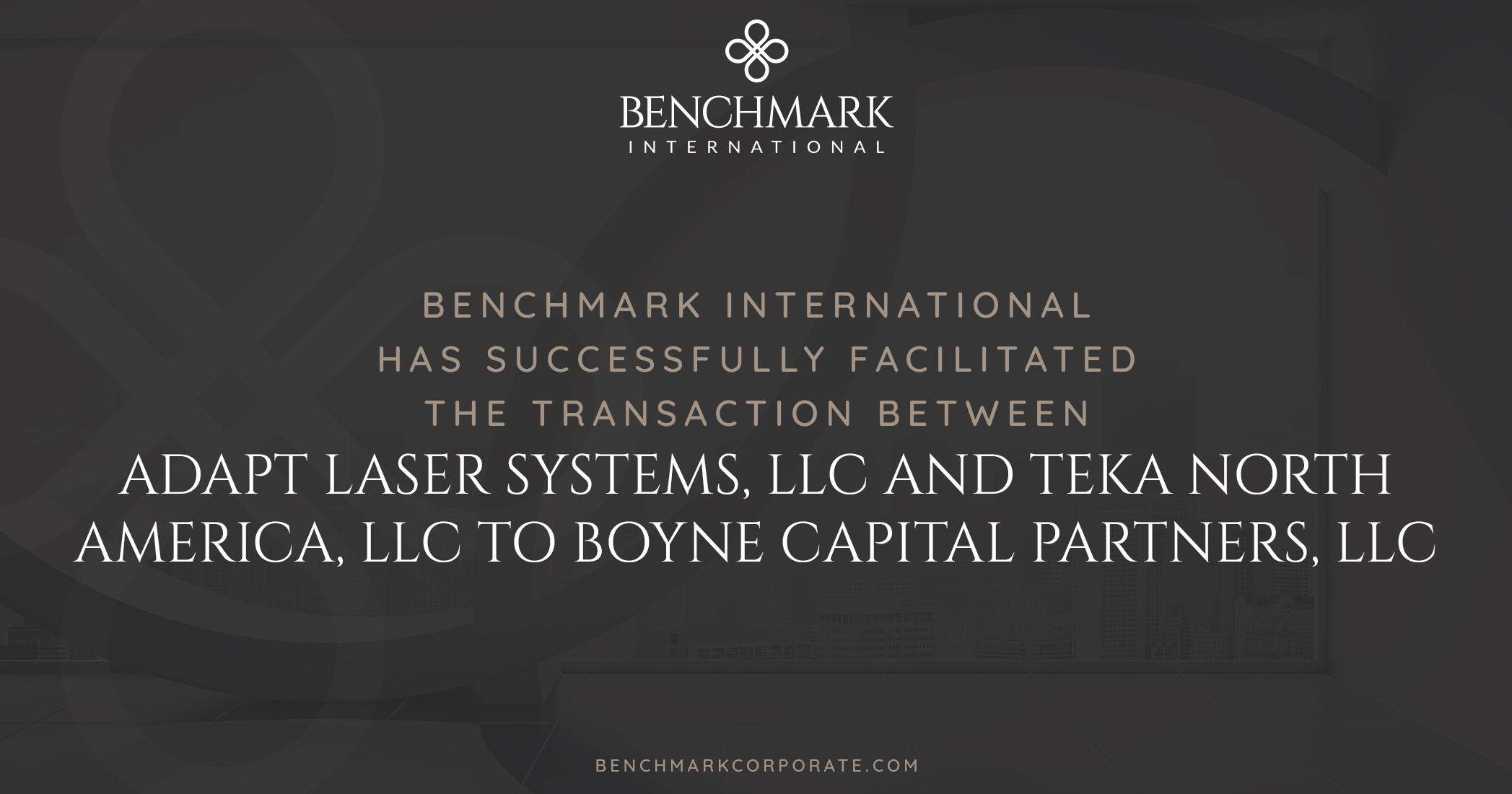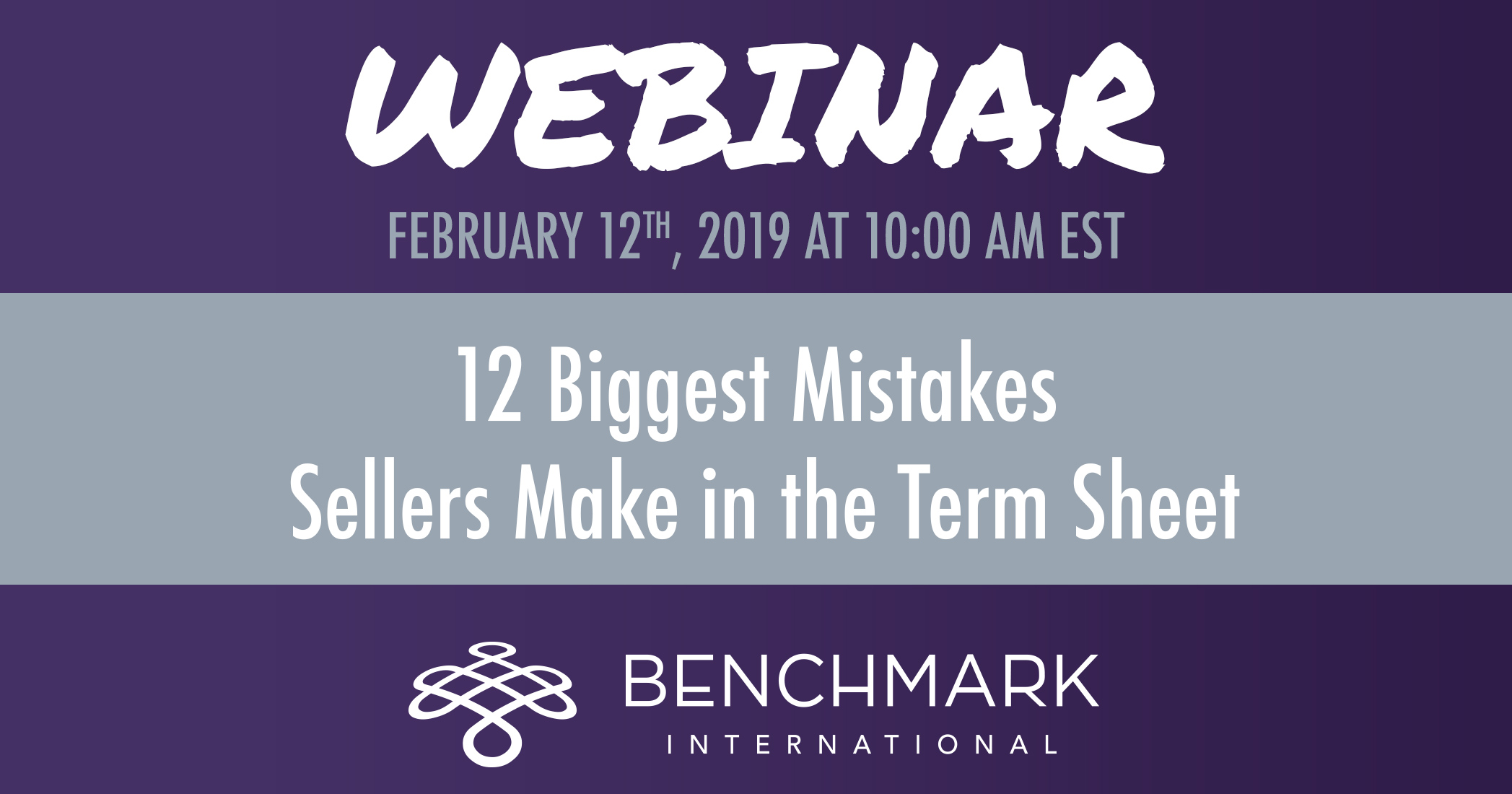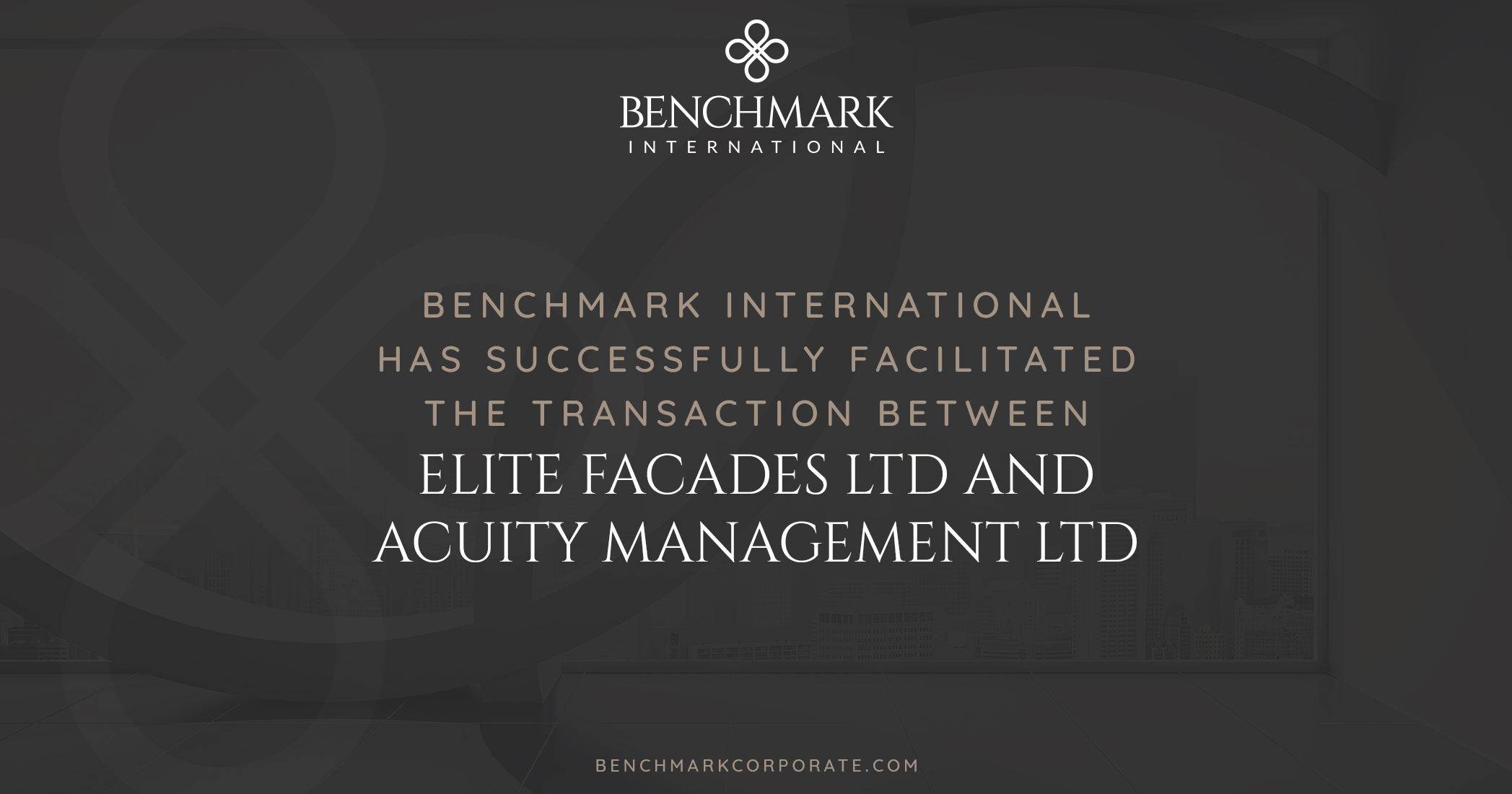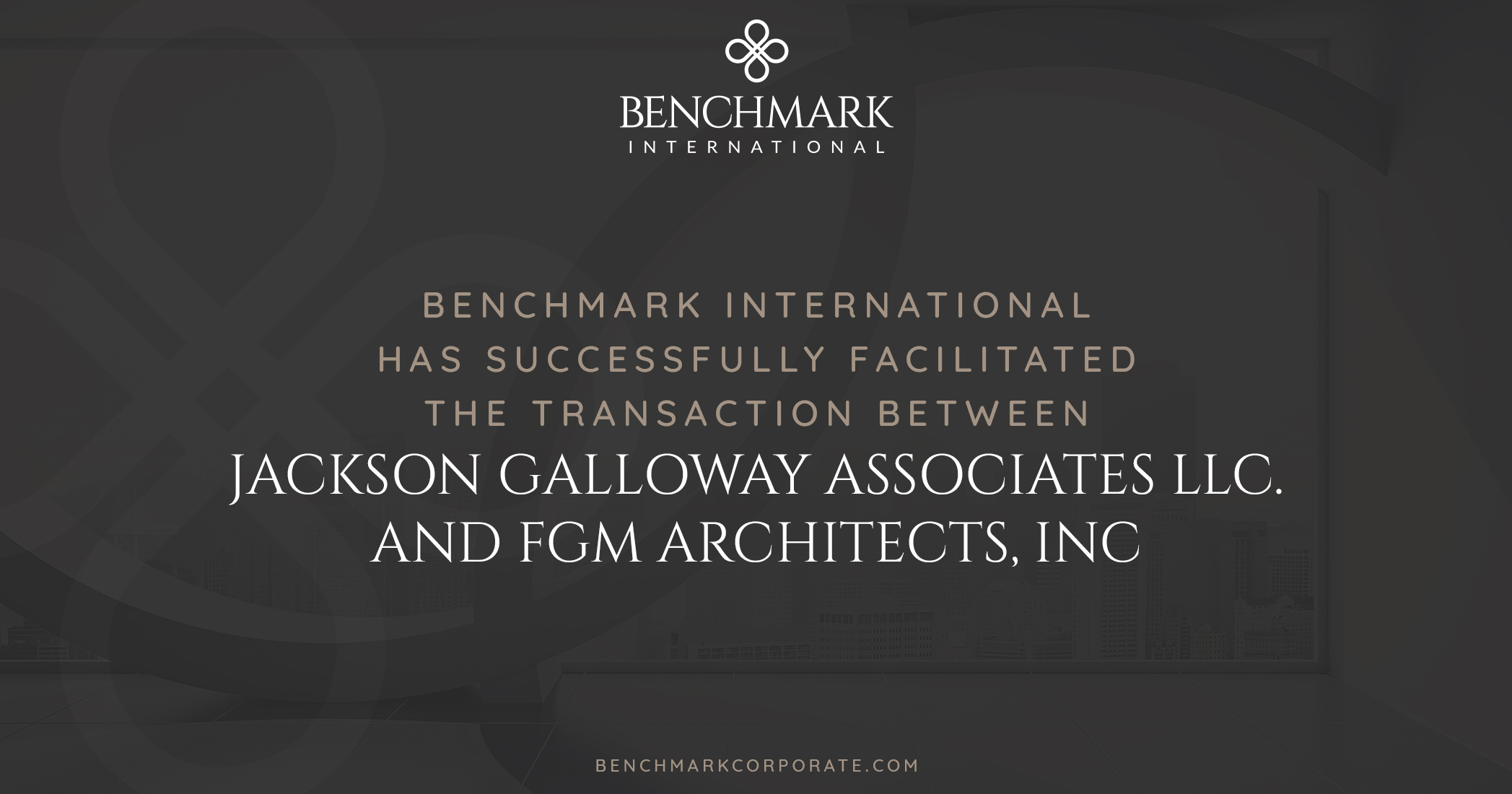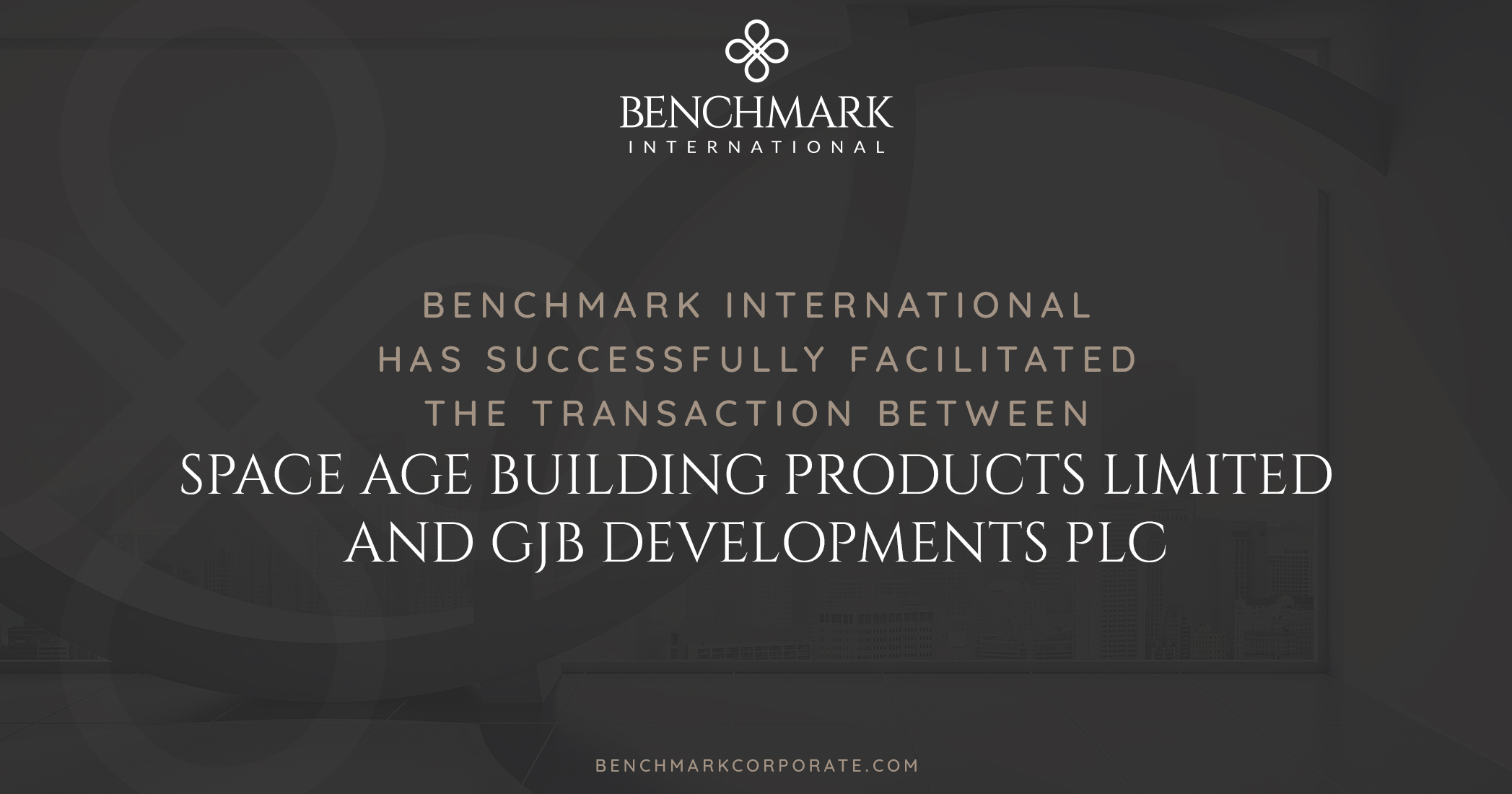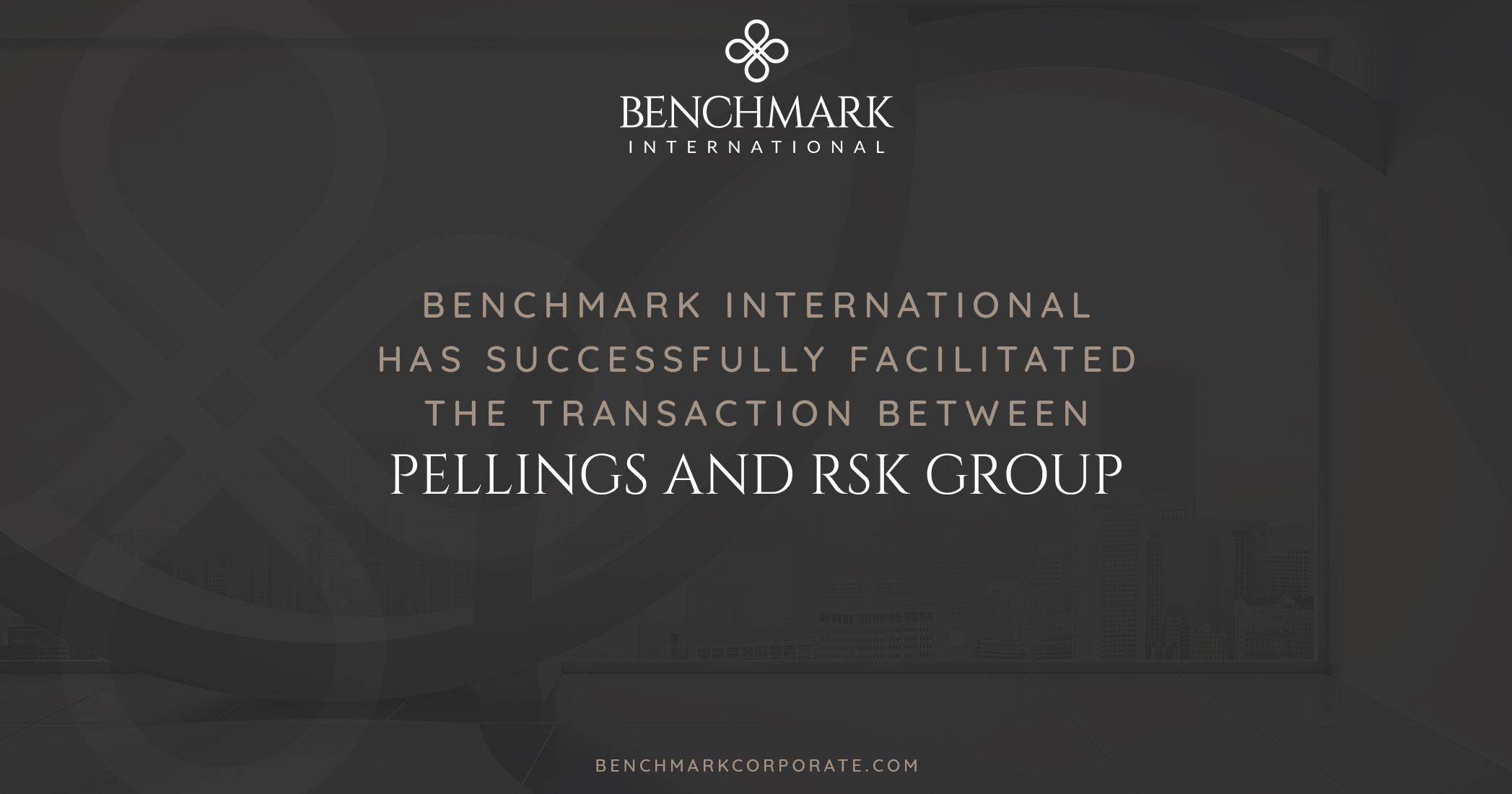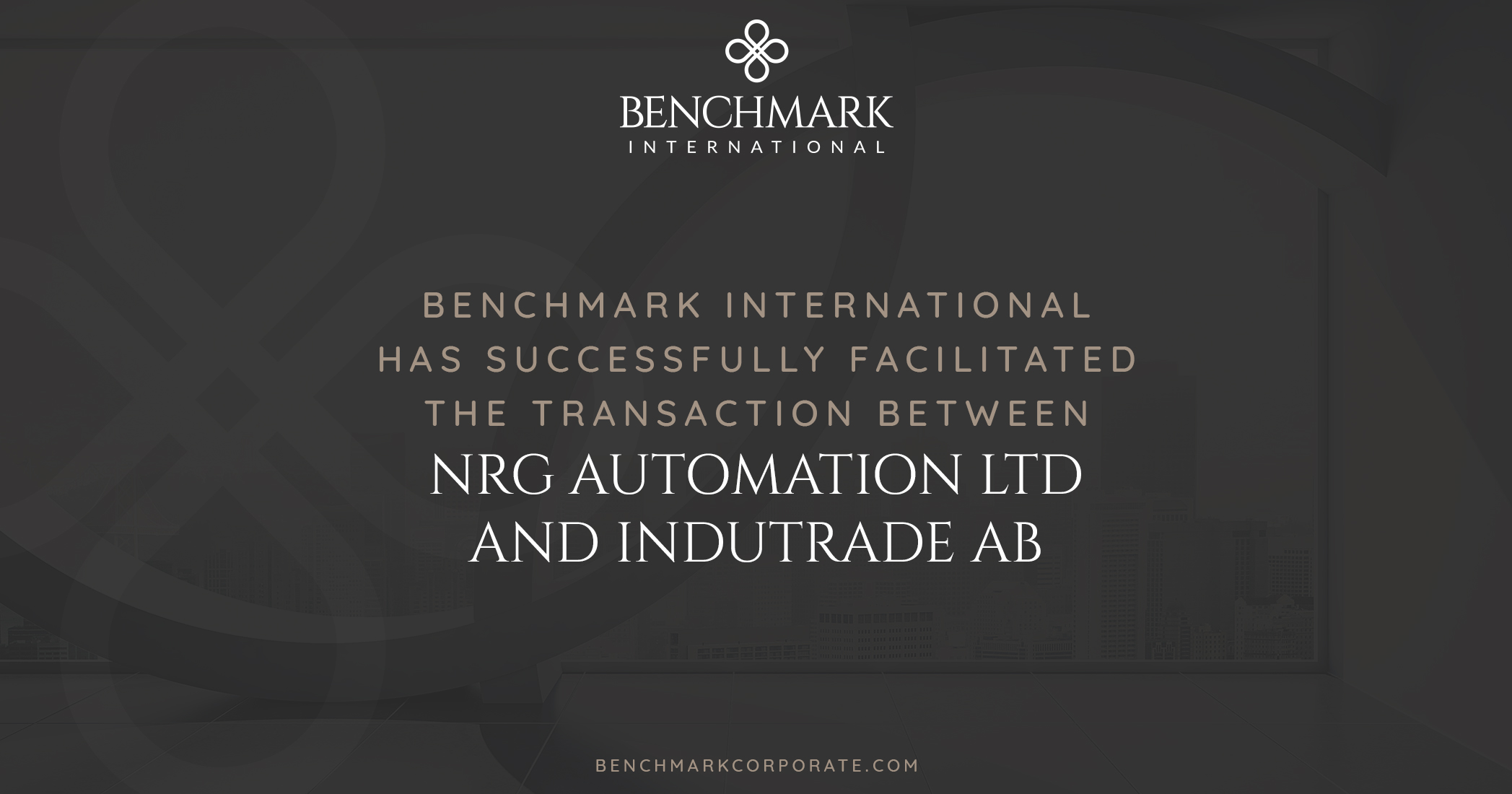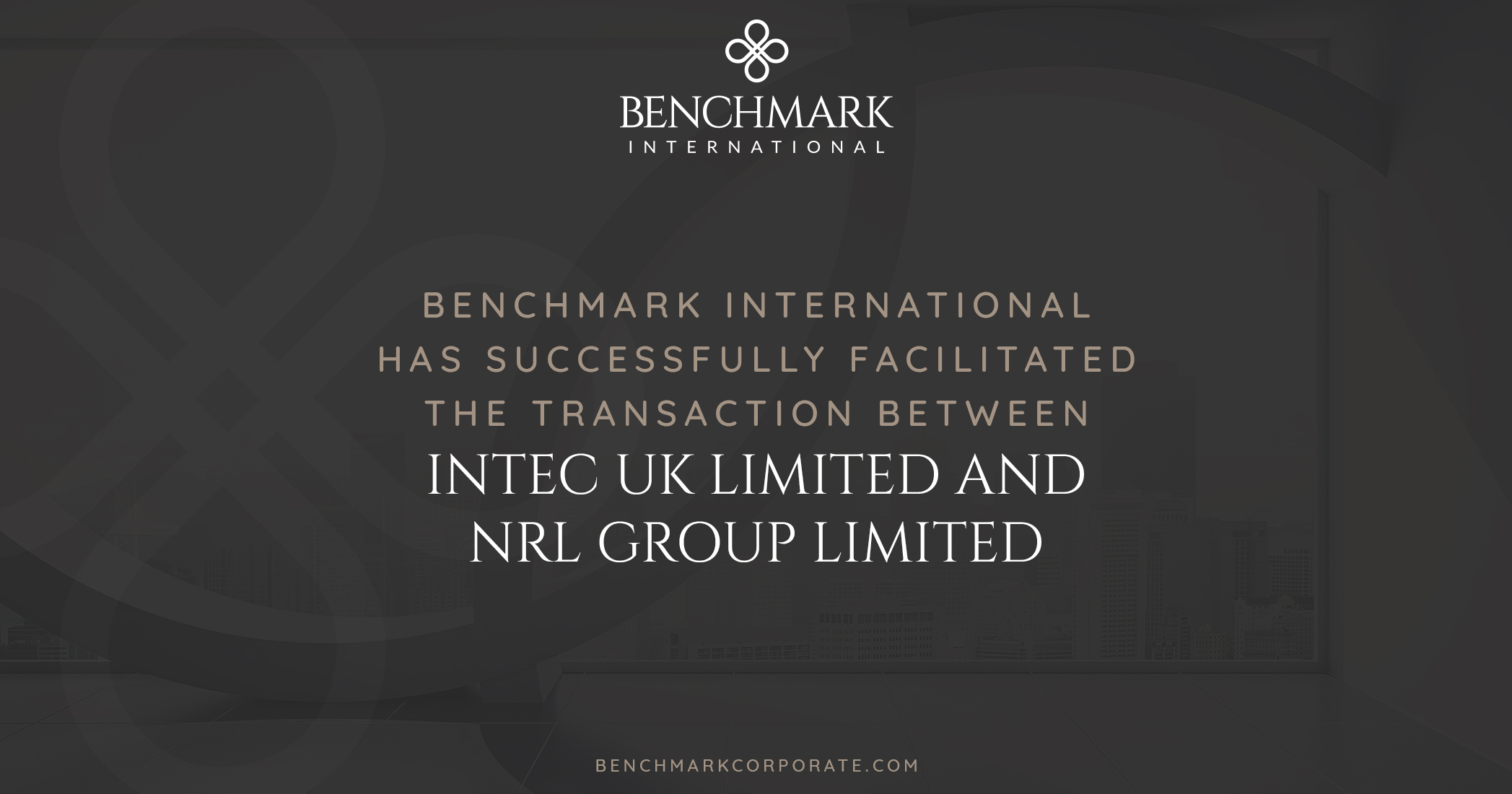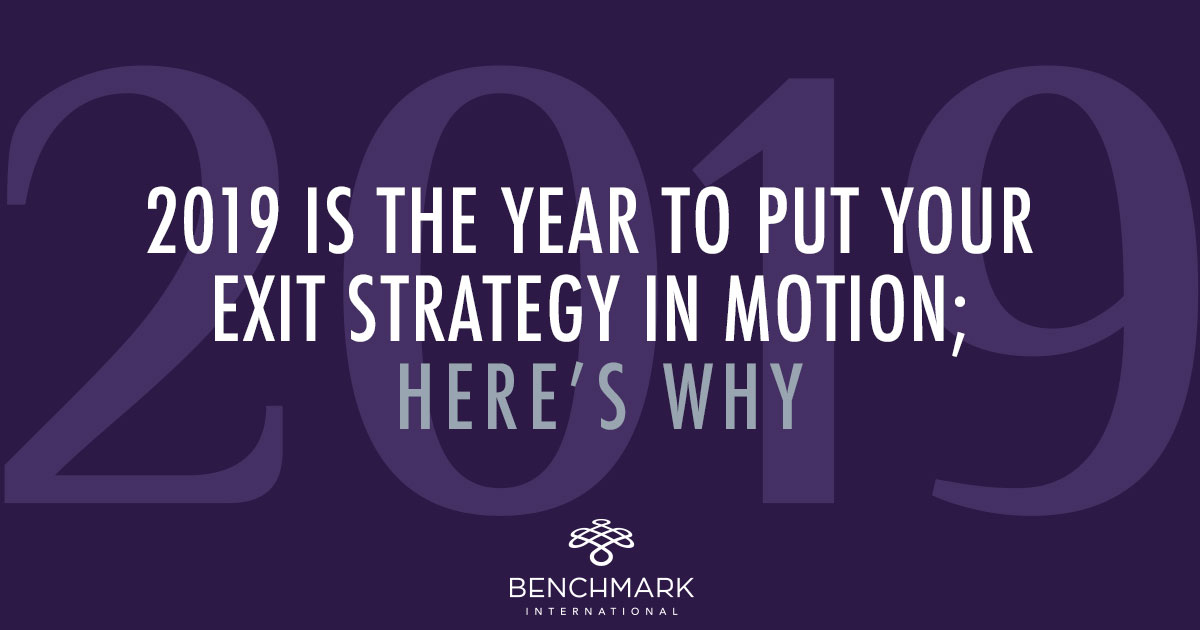The sale of a privately-owned business is often the most significant financial event in the life of the owner. It marks the culmination of years of hard work and converts paper wealth into real wealth. It is a one-time opportunity with no do-overs. Every business owner surely desires the best economic outcome, yet, time and time again, business owners leave money on the table by not adequately preparing for the sale of their company. This article suggests five actions that private business owners can take to avoid leaving money on the table when selling their business.
READ MORE >>Archives
How to Avoid Leaving Money on the Table When Selling a Business
Cross Border Deals Soar in the North West
Cross border deals involving North West companies have doubled over the past year according to research conducted by Deloitte in partnership with Experian Corpfin.
The volume of deals increased from the 59 in 2017 to 120 in 2018, with value up 450% from £1.2bn spent in 2017 to £6.6bn in 2018.
READ MORE >>Share this:
What Funding is Available to Grow my Business?
When you are ready to take the steps to grow your business, you need to determine the funding you can receive to help make it happen. Many different funding options are available, but how do you know which is right for you?
The first method that comes to mind for many people is borrowed funds. There are multiple options for gaining funding through lenders, including Small Business Administration (SBA) loans, traditional bank loans, micro-loans, and online business loans. SBA loans and traditional bank loans typically take months to secure and the repayment terms can run up to twenty-five years with interest rates varying. Micro-loans and online business loans can take less time to secure but they carry higher interest rates than bank loans and may have pre-payment penalties. Additionally, even if you get a loan, business growth is not guaranteed. If the borrowed funds are not used wisely, you can end up paying back money with interest that never helped you make any additional money in the first place, just digging you further into debt.
Another method of funding is retained earnings. This approach uses a combination of operating cash flow and profits left in the business to fund your growth plan. Using retained earnings avoids adding debt and interest payments. You also stay in full control of your company by not involving outsiders in your business. However, use of retained earnings can be a very slow process if you must wait and build up the funds you need. You also run a major risk of not having the finances necessary to keep your company operating from a healthy perspective.
Private equity is a way to acquire funding by selling shares in your company to outside investors. Through this long-term growth strategy, you avoid getting involved with a bank and you minimize your risk. With venture capitalists or angel investors, you also gain the benefit of added expertise and personal interest in the success of the business. One aspect of using equity capital is that shareholders will be expecting a return on their investment. This could result in the consideration of a merger with another company or having the company acquired by a larger company.
Many companies choose to use mergers and acquisitions strategies because the growth is more imminent. Instead of waiting years for the business to grow itself, merging with another company can double the company’s size, reduce competition, and increase profitability. Merging with another business also gives you the advantage of acquiring intellectual property and expanding innovation.
Working with an experienced growth partner such as Benchmark International will help you figure out the best direction for you, whether it is a merger, an elevator deal in which you retain a stake in the business, a cash-on-completion arrangement, or a complete exit strategy. There is a range of options available depending on how you want to see your company transformed. The best strategy will also depend on the state of your company and the current market. It is important that there is careful consideration of the cultural fit between the two companies and a firm understanding of how to manage expectations. Having the right connections around the world in various sectors is also a key attribute you want in your representation because it opens up a wealth of opportunities.
The right partner can maximize value and make your vision a reality for the business that you have worked so hard to build. Benchmark International can be relied upon as a leader in the global landscape to get you the results you deserve. 
Share this:
With the Brexit Clock Ticking, How is the M&A Market Faring?
With just under 40 days until Britain is set to leave the EU, doom and gloom is forecast as a potential no deal Brexit looms.
But, when it comes to M&A activity, this is not necessarily the case, as the political environment is doing little to dampen enthusiasm for M&A.
The following are why the UK M&A market is exceeding expectations:
Share this:
The Best-Kept Secrets for Business Growth
Expand your reach.
By finding ways to increase your exposure to the world, you can give your business the momentum it needs to grow. Examine your marketing plan. Broaden your social media footprint. Immerse yourself in the trade by publishing articles and having a strong presence at trade shows. Think of creative ways to interact with customers and target markets to generate buzz and get people talking. The extent of the opportunities available to you will vary depending on your company’s industry, but you will want to be sure you are doing everything you can to reach as many people that you can.
Embrace change.
Doing business a certain way may have gotten your business where it is today, but you should not be afraid to make some changes. Is there a new process or department you can implement? Is there a sales opportunity you are missing? Are there adjustments you can make to save time or money? Always be open to hearing new opinions, ideas, and ways of doing things. Markets can change quickly and you will want to adapt seamlessly. By closing the door on change, you could be closing the door on growth.
Value relationships.
It is just as critical to maintain existing relationships as it is to cultivate new ones. You will want to network in new circles and expand your horizons. At the same time, you will want to show your long-term customers that they are important to you. After all, they have been with you through it all and are partially responsible for your success. Stay engaged with them and focus on their needs. Your track record of lasting relationships is a reflection of your company and its values, making doing business with you more appealing to new customers. Those relationships can also be a source of referral of new business opportunities.
Get a boost through mergers and acquisitions.
Consider using mergers and acquisitions strategies as a smart option and faster route to generate growth. While greatly beneficial, pursuing a merger or acquisition can also be quite complex. This is especially the case if you are planning to expand into a global market, which presents its own host of challenges. 
You will need to determine if you need a cost synergy or a revenue synergy solution. For example, buying direct competitors to increase your company’s size and decrease competition is a revenue synergy. So is adding value by purchasing companies that are market adjacent to your own. This method can help you add new talent or gain ownership of intellectual property. In contrast, a cost synergy solution reduces costs through consolidation of overlapping entities. Getting this right can result in a valuable deal for all parties involved.
Major deals include a large amount of small details, such as timing, tax planning, and logistics. Additionally, if you plan on leaving the business as part of the transition, you need assistance crafting your exit strategy. Consult a resource that has vast knowledge and experience in all of these areas. By partnering with a reputable mergers and acquisitions firm, it will be easier for you to navigate these complicated waters and ensure that you find the best strategy for your company’s growth.
READ MORE >>Share this:
Irish M&A in 2019 – Seller’s Market is Predicted to Continue
Looking back at deal activity in 2018 within the Irish market, there was a strong appetite for deal making as, while the volume of transactions dipped slightly, the 440 transactions recorded by Experian is at the higher end of the typical annual volume, and the value of transactions hit €92bn, up from €31bn the previous year. This was boosted because of an increase in large and mega-deals, with seven €1bn plus deals announced during 2018, up from six in 2017. However, it was the €52bn acquisition of Dublin-headquartered drug maker, Shire PLC, by Japanese pharmaceutical company Takeda that dominated the deal landscape.
Not only was this the largest transaction of the year, but it was the biggest corporate takeover in Irish history, in a year characterised by high-value M&A in the global pharmaceuticals space – a trend that looks set to continue into 2019.
READ MORE >>Share this:
Five Changes to Due Diligence to Expect in the Next Five Years
Due diligence, the start of the end whereby a business is scrutinised by a prospective buyer to establish its assets and liabilities and evaluate its commercial potential before purchase. Unfortunately, it is very time intensive and can make or break an M&A deal.
Thankfully, due diligence has evolved and improved, largely due to advances in technology and digitisation, helping those undertaking due diligence avoid physical data rooms and huge volumes of paper documents, instead using sophisticated, intelligent virtual data rooms, complete with digital content libraries and access to automated analytic reporting.
This has led to greater speed, simplicity and security across the entire process, enabling practitioners to close deals faster.
However, it is still a frustrating process, so is it possible that due diligence could become more efficient than it has in the past? Could technology transform due diligence? And what other factors could impact the process in the next five years?
READ MORE >>Share this:
How Do I Make Sure my Business is Left in Good Hands When I Sell?
Find the right partner.
Partnering with the best team of experts to help you sell your business is the most important thing you can do when seeking a buyer you can trust. Not making the right choice can cost you time and money. Because you want to sell at the best time, you don’t want to waste time talking to the wrong people. By working with an experienced and globally renowned mergers and acquisitions team such as Benchmark International, you can mitigate the risk of letting an under-qualified broker deal with the sale of your company. You’ll want to make sure the firm you choose has highly specialized experts in your area of industry and the kind of global connections that can find the best buyer for your business.
Stay involved in the process.
Even if you work with an experienced firm to facilitate the sale, you want your relationship to be a partnership. They are going to work hard for you, but you know your business better than anybody. Finding a team that wants you to remain engaged in the process will result in a sale you can feel good about. By staying involved, you are also giving prospective buyers added confidence in their purchase.
Know your magic number.
It is crucial that you have an idea of your company value before putting your business on the market. Any reliable buyer will expect to be given accurate financials about your business. It is recommended that you seek the help of an organization that has the expertise in achieving maximum values for businesses. They will help you assess the value, fix weaknesses, boost strengths, and form your ideal business exit strategy for maximum success.
Be honest.
Represent your company accurately when dealing with prospective buyers. Inflating numbers or trying to cover up issues can result in a failed deal when the actual financials come under review. If you want to trust the buyer with your business, you should expect that they would want to trust you, as well.
Be prepared.
Being adequately prepared is also an important step in selling to the right buyer. Make sure you have all the documentation in order regarding finances, profitability, real estate, and staffing. Make sure inventory is fulfilled, records are current, and taxes are paid. Being prepared can affect the price your business will command in the marketplace, as well as the level of interest from quality buyers.
Think ahead.
Do not get so focused on the sale of your business that you are not thinking about the transition period. An experienced partner can help you keep your focus in the right place and ensure that you and the buyer are on the same page, and both are properly prepared for the transition.
There is plenty to consider when taking on the daunting task of selling a business. Keep in mind that while you are an expert in your particular business, arranging its sale may be beyond your range of expertise. Relying on a knowledgeable team such as your partners at Benchmark International can ensure that you get the value you deserve and sell to a buyer you can trust.
READ MORE >>Share this:
Benchmark International has successfully facilitated the sale of Adapt Laser Systems, LLC and Teka North America, LLC to Boyne Capital Partners, LLC
Benchmark International has successfully facilitated the sale of Adapt Laser Systems, LLC and Teka North America, LLC to Boyne Capital Partners, LLC.
Headquartered in Kansas City, Missouri, Adapt Laser has supported North America since 2003, providing pioneering laser cleaning solutions to many bonding, corrosion, and surface treatment issues facing complex industrial processes. Adapt Laser, in partnership with CleanLASER, is the only supplier of fiber-coupled, compact, mobile or stationary laser cleaning units, with 20 to 1000 watts of laser power for a wide-range of handheld or automated applications. Illustrative uses include composite part tool cleaning, defense and military applications, oxide removal, paint & varnish removal, weld & joining pre-treatment, and mold cleaning. End-markets served include aerospace, automotive, defense, nuclear utilities, semiconductors, and food production
President of Adapt Laser Systems, Georg Heidelmann, stated, “Benchmark International was paramount to the success of our deal. Not only did Tyrus and the team at Benchmark demonstrate their expertise in all areas of M&A but they also took time to really understand my specific business and industry. Through Benchmark’s process a number of potential partners were identified which allowed me to select the group who truly aligned with Adapt’s people, culture, and vision for the future. I would like to thank the Benchmark transaction team for the extraordinary effort in making this deal a reality.”
Boyne Capital is a Florida-based private equity firm focused on investments in lower middle market companies. Founded in 2006, Boyne has successfully invested in a broad range of industries, including healthcare services, consumer products, niche manufacturing, and business and financial services among others. Beyond financial resources, Boyne provides industry and operational expertise to its portfolio companies and partners with management to drive both company performance and growth. Boyne specializes in providing the capital necessary to fund corporate growth and facilitate owners and shareholders' partial or full exit.
Tyrus O’Neill, Managing Partner at Benchmark International, stated, “It was a pleasure to represent Georg and Adapt in this deal, and on behalf of Benchmark International, we are very pleased with the outcome. Both sides of the transaction were extremely professional throughout the process and it was a pleasure to work alongside Georg and the group at Boyne. The parties have numerous strategic synergies which has led to a great process and overall result. This has been a thoroughly satisfying experience and we wish both parties the best of luck moving forward.”
Share this:
Supreme Court Makes M&A More Difficult
Federalism has always posed challenges for middle market M&A. While compliance with federal laws and regulation does not typically lead to issues in acquirers’ due diligence on middle market companies, the companies do often have problems with those pesky out-of-state state-level issues. Experience indicates that this is true for a variety of reasons. First, many of these companies have only recently expanded into other states and, as is common in a growing business, operations often get ahead of back office tasks (such as compliance). Second, owners of middle market businesses are often selling precisely because they realize that their businesses have grown to the point that they require additional overhead expenses that the owners are not interested in dealing with. Third, every states’ rules are different and ever-changing and it is very hard to get a handle on six, or a dozen, or 49 different sets of rules and shape a business compliant with each set. Fourth, and nobody likes to admit this, states can be a bit lax on enforcing their rules, especially on out-of-state companies. Acquirers are well aware of these facts and, as a result, dig deep on state-level issues in their due diligence.
While very few business owners are attorneys, most have at least a vague sense that when they establish a “physical presence” in a state, they need to start worrying about that state’s laws. Most probably also realize that physical presence is a bit fuzzy and that each state interprets the term differently but the US Constitution places a limit on the breadth of that definition due to the Interstate Commerce Clause. So, this has always been a nebulous issue but at least there was a bit of a bright line test around when a company might have to start thinking about looking at the rules in a new state for things such as income tax, collection of sales tax, workers compensation and the like.
Ah, things were so much easier before 2018.
* * *
Then, on October 1, 2018, the Supreme Court issued its ruling in the case of South Dakota v. Wayfair Inc., et al. South Dakota was attempting to require the online retailer Wayfair to collect sales tax for online sales for which goods were shipped into the state’s boundaries. Wayfair had a very strong case that it had no physical presence in the state and therefore the state could not force it to do anything, especially not collect taxes for Pierre. The state argued that it had a very powerful statute that said even without physical presence it could force companies to collect sales tax on sales made into the state if the seller had an “economic presence” in the state. Wayfair responded that decades of Supreme Court rulings indicated that this statute violated the US Constitution as an unfair restraint on interstate commerce. The Supreme Court stepped in and changed its mind.
* * *
Since that day, the bright line with regard to when to start worrying about a state has been erased – at least with regard to sales tax. And, in the four months following the opinion, states have begun to rub that big eraser across other areas of law as well. The next to disappear is likely state income tax, then perhaps use tax, workers compensation, and unemployment insurance. As of the writing of this article, of the 45 states that have a sales tax, all but eight have already passed the economic contacts test for sales tax. (That sure didn’t take long.) How many middle market companies (selling items subject to sales tax) have adapted their practices to this tsunami of a tax change? From what we’ve seen, just about zero. How many acquirers have adjusted their due diligence process? Let’s say the adoption rate there is at least as fast as those of the 45 states - and that is being generous to the states.
The results on M&A already include (i) longer due diligence, (ii) acquirers demanding larger escrows and holdbacks, and (iii) purchase price adjustments. The longer middle market companies go without getting up to speed on the new reality, the larger the potential penalties on the business once the acquirer gets hold of it and therefore the larger the issues will become in the deal process.
Author:
Clinton Johnston
Managing Director
Benchmark International
READ MORE >>
Share this:
Top 10 Places to Retire in 2019
Are you considering selling your company and retiring? Once you have an exit strategy planned, it is time to think about where you will spend the best years of your life. We have compiled a list of inviting destinations to inspire you to make the most of your retirement.
New Zealand
Relocating to New Zealand has the power to change your entire outlook on life. It is home to a pristine environment, quaint communities, and amazing weather. There is plenty of sunshine and little variance between summer and winter temperatures. The unique landscape offers black sand beaches, expansive mountains, glowing caves, and delightful wildlife such as seals, penguins, and dolphins. The island nation is also home to world-class wineries, mind-blowing golf courses, luxury sailing, and exclusive spas
Monaco
The gorgeous French Riveria is home to this ultra-glamourous city-state that is often noted as one of the best and safest places in the world to live. Settle in among the worlds VIPs and high rollers in this tax haven of luxurious real estate and natural Mediterranean beauty. The climate is quite temperate, the location is in close proximity to all of Europe, and the healthcare is first-rate. Monaco has quite the gambling and cultural scene, and you can expect to be surrounded by luxury homes, vehicles and yachts.
The Dalmation Coast, Croatia
The scenery in Croatia is breathtaking along the crystal clear waters of the Adriatic Sea, with lush mountainside forests and spectacular castles. The country offers a rich culture, with Gothic and Renaissance architecture showcasing a unique background of centuries of heritage. The local cuisine is delectable and the country is also boasts a renowned wine region. From skiing to sailing to diving, there is a wealth of things to do while you enjoy all four seasons.
Algarve, Portugal
One can live quite well in this culinary paradise on very little money. Rent is inexpensive, the area is safe, English is widely spoken, and the scenery is rich with churches, pagodas, temples, mosques, and British-colonial buildings. The cost of healthcare is also low. Malaysia is one of the top five countries in the world for medical tourism with several private hospitals that are internationally accredited.
The Cayman Islands
The Cayman Islands may be one of the most relaxing countries in the world in which to retire. Spend your days basking on pristine white beaches, indulging in the hundreds of restaurants, and taking in the vibrant cultural scene. The tropical climate, clean air, and high quality medical care make the country ideal for a healthy, stress-free lifestyle. It is also quite possibly the safest of the Caribbean Islands, with one of the lowest violent crime rates in the world.
Costa Rica
The tropical climate is a big attraction for anyone looking to move to Costa Rica. But the region offers much more to consider. Gorgeous beaches, rainforests, and mountains compliment the bustling cities and quaint towns. There is excellent medical care, modern infrastructure, a rich culture, and a laid-back way of life. It is truly one of the most peaceful places in the world. You’ll also find a very welcoming expat community and irresistible real estate opportunities.
Santo Domingo, The Dominican Republic
Enjoy a relaxed Caribbean life balanced with the benefits of a growing economy. The country’s infrastructure has improved greatly over the past 10 years. It has two international airports to accommodate convenient travel needs. Plus, the area offers a uniquely sophisticated European lifestyle with incredible dining, shopping, culture, and history. Whether you’re strolling the cobblestone streets alongside glass skyscrapers, or sailing around the thousands of miles of aquamarine coastline, Santo Domingo is a place of worldliness, charm and excitement.
Did you see the Top 10 Places to Retire in 2018?
Abruzzo, Italy
Located in central Italy, Abruzzo is comprised of beautiful small cities that are abundant with culture and warm, friendly faces. Considered the most romantic corner of Italy, the sprawling countryside is sprinkled with vineyards, orchards and groves. You’ll have access to amazing cuisine, majestic castles, and picturesque parks. Beaches and mountains are both nearby, and it is only a one-hour drive to the metropolis of Rome.
Malta
Enjoy a warm and sunny climate along with a luxurious lifestyle on the Mediterranean island nation of Malta. It is Europe’s smallest country but it is big on culture and things to do. Imagine yourself dining al fresco along the coast while basking in beautiful sunsets, or sailing around the islands while taking in the enchanting architecture. Malta is also home to many organized groups for expats, offering horseback-riding clubs, running clubs, dinner nights, and more.
Dubai, United Arab Emirates
BelIf you’re seeking an extravagant lifestyle, Dubai is definitely one destination to consider. Every inch of this city is built with luxury in mind. Make your home at the top of one of the world’s most majestic skyscrapers and overlook this spectacular oasis in the desert. Or settle into a luxury villa in a gated community on iconic Palm Jumeirah island. Here you’ll find plenty of glitz and glamour, a popular boardwalk, beach clubs, spas and a nightlife scene. Dubai is also a great location for making new business connections.
If you’re ready to start planning your retirement, contact Benchmark International for help with your exit strategy.
READ MORE >>Share this:
Year of the Pig – What this Means for Business and Prosperity
The Year of the Pig is now upon us and, with this, comes feng shui tips and predictions on our health, career and finances.
So what does feng shui predict for the year ahead in terms of business and prosperity?
READ MORE >>Share this:
Strong M&A Activity Continues In Nashville For The Healthcare Industry
Since the early 70’s, Nashville has been considered a hub when it comes to the health care industry. Nashville has developed and changed the landscape of the industry in the past 50 years. The development of the community began with Hospital Corporation of America (HCA). Largely through hundreds of mergers, acquisitions and well as new companies, we’ve seen industry trends set in Nashville, as well as startups and spinoffs bringing different sectors of the industry to Nashville.
Before the Hospital Corporation of America, most hospitals were non-profit or affiliated to a religion. In 1969, one year after inception, HCA became a publicly traded company. This changed the landscape of the industry for good. Through an abundance of M&A transactions, HCA now owns and operates more than 170 hospitals in 20 states across the country. In 1995, the Nashville Health Care Council was established, understanding the Nashville health care industry was responsible for $3.7bn in revenue at the time, while providing 53,000 jobs. Today, the council reports $92bn in annual revenue generated, all while providing more than 570,000 people employed around the globe by healthcare companies based in Nashville. There are over 900 companies that directly provide health care services, or are in some way involved in the industry. These numbers are massive, and spurred a ripple effect around the country causing more private equity spending to focus into the industry. This effect has led to eighteen publicly traded healthcare companies calling Nashville their home, while enticing more than $1bn in venture capital investments over the past decade. The leaps and bounds made during the past 50 years are obvious, as the entire landscape of the industry has complete changed. During 2006, Bain Capital, Kohlberg Kravis Roberts & Co. and Merrill Lynch completed a $33bn leveraged buy-out of HCA. This was the largest leveraged buy-out to date and spurred an unprecedented amount of investment in the industry. In 2011, HCA returned to the public market in the largest US private equity-backed IPO to date ($3.79bn raised). HCA’s chain system business model was emulated by hundreds of not-for-profit hospitals throughout the country, and they are considered to be the trailblazer of the industry.
The M&A landscape continues to change the healthcare industry to this day. Through the first half of 2018, the healthcare sector saw deal value increase to $315bn, up from $154bn in the same period the previous year. The healthcare sector ranks third in terms of total deal value. From a valuation perspective, healthcare M&A transactions were at an all time high in 2017. A large driver within the space was within the senior housing and care marketplace. The number of announced transactions is on pace to set a new record, but the dollar amount of these deals will not exceed the record. While this shows the hyperactive nature of the marketplace, these deals are occurring as smaller transactions rather than the mega-deals we’ve seen in the past. This is a very attractive marketplace for sellers all things considered. Private equity groups accounted for a large uptick in spending during Q4 of 2018. Financial buyers are notably optimistic about the healthcare market, with 120 total deals announced in the final quarter of 2018. This bodes well for 2019 with 2018 in the rearview, healthcare continues to expand due to high valuations, a very large number of transactions, and an increasingly attractive marketplace.
For the third year in a row, the number of small business transactions reached record numbers, as reported by BizBuySell. Financial performances of the small businesses are increased year over year, as well. 49% of sellers said their businesses performed better in 2018 compared to 2017, and another 36% had similar figures comparably. With financial performance increasing, the value of the transactions inevitably grew. The medium asking price for small businesses in the US grew 10% from 2017, a clear indication that buyers are willing to pay more for businesses with a proven financial track record and promising futures.
Author
Sean Ryan
Analyst
Benchmark International
T: +1 615 924 8522
E: Ryan@benchmarkcorporate.com
READ MORE >>
Share this:
Benchmark International is Attending the Real Deals Mid-Market Conference 5-6th February
Benchmark International is attending the Real Deals Mid-Market conference on the 5th and 6th February at One America Square Conference Centre, London.
If you are interested in the vast number of global opportunities that Benchmark International has to offer, make sure to come and speak to the Benchmark International team.
READ MORE >>Share this:
How Can I Expand My Business Internationally?
Expanding into new markets around the world is an exciting opportunity for business growth. But where do you start? There are several factors you will need to consider when undertaking a venture of this magnitude.
First and foremost, you will need to determine if expanding into a new country will be profitable. Identify your target market and assess the need for your commodity in that market. Perform a product gap analysis or SWOT analysis to determine demand and how your product or service stacks up to local products. You basically need to determine whether anyone will buy it, so it can be a wise move to test your product in that market before going any further.
Create a localized business plan to evaluate your preparedness for the venture, and set reasonable goals for the process. Expanding into new markets is akin to starting something new and it’s going to bring a new set of challenges. Consider if you need to create a new executive team to help manage the transition or if your existing team can hit the
ground running.
One of the most important steps you can take in expanding to a new market is to make sure you take the time to understand the country’s culture. Etiquette, language, and business culture can vary greatly and impact the success of your endeavor.For example, make sure your product or business name translates appropriately into the native language.
You will also need to think about the country’s logistics and how you plan to distribute your product or service. Consider legal regulations, tax laws, insurance needs, banking transactions, transport costs, data protection, and labeling requirements. You should also protect your intellectual property by looking into trademarks, patents, and design rights. Hiring an international business consultant can help you avoid any pitfalls and ensure that all your bases are covered.
Taking a product into new markets also means understanding the ins and outs of exporting. The good news is that it’s often in the best interest of most governments to boost exporting, so seek out ways that they can help you with market research, trade support, and exportation training programs. This information is typically available on government websites. You can also contact trade commissions, chambers of commerce, and other organizations
for assistance.
If you plan to acquire an existing business, you will need the proper guidance from an experienced business acquisitions firm to help find the best opportunities and broker a successful deal. There is plenty of due diligence required to adhere to local laws and make sure the terms of the acquisition suit all parties involved. At the same time, the right acquisition can be quite advantageous and reduce some of the risk that comes with an international venture. The business to be acquired has existing infrastructure in place and understanding of the local market’s regulations and relationships, offering some stability to a complex process. A sound strategy can make all the difference when buying a company.
There is a great deal to manage when expanding a business internationally, but you don’t have to do it all alone. World-class business experts with strong global connections, such as Benchmark International, can help you analyze the market, navigate the process, and tackle the world.
READ MORE >>Share this:
2018 Round-Up – The Strongest Sectors for UK M&A Revealed
The UK M&A market during 2018 proved a successful year and, breaking it down into sectors, seven of the top ten saw a rise in deal value compared to 2017’s figures, despite cautious predictions from dealmakers because of the uncertain operating climate.
But which were the strongest sectors of 2018?
READ MORE >>Share this:
Upcoming Webinar: 12 Biggest Mistakes Sellers Make in the Term Sheet
Date:
Tuesday, February 12th at 10:00am - 11:00am EST
Details:
Maximizing value isn’t only about the headline price. It’s about getting the deal right, using your leverage when you have it, and knowing where you stand in the deal at all times.
Sellers lose more money at the Term Sheet stage than in any other part of the process. Buyers know the ins and outs. They know how to best use the Term Sheet and the process that surrounds it to make their offers look better than they might end up being. For sellers, this is typically the least understood part of the company sale process. This experience gap is unfortunate for sellers because it results in not only lost value but at times the loss of the entire deal; a loss that comes after a great deal of financial and emotional investment.
For sellers to truly maximize the value of their business in a sale, they must look beyond the headline number that usually appears in the first paragraph of the Term Sheet and understand the other key value drivers in the rest of the document. If the headline number was the only key term, Term Sheet’s would be one paragraph long. This quick introduction will concentrate on the 12 most common sell-side errors in the Term Sheet process.
Hosts:
Clinton Johnston
Managing Director
Benchmark International
READ MORE >>
Share this:
How to Deal with State Income Tax when Calculating EBITDA
As we all know, EBITDA is not defined under either accounting’s Generally Accepted Accounting Principles (GAAP) or International Financial Reporting Standards (IFRS). What’s worse is that there is no other evenly mildly authoritative source that delves into the specifics of the definition beyond much more than a one-word description of each letter’s meaning.
Despite its murky definition, EBITDA remains the lengua franca between buyers and sellers when discussing valuation of privately held companies. Regardless of the true manner in which the seller sets the minimum price for which she will part with her business and whichever of the likely more academic methods the buyer has used to determine its maximum purchase price, the parties tend to lob multiples of EBITDA back and forth across the negotiating table.
While the exact meaning of each letter in the acronym is worthy of its own discussion, there is perhaps no more frustrating issue than how to deal with state income tax in the “T” portion of the term. The frustration arises because some parties refuse to acknowledge that what is so eminently clear - that state income taxes should be treated in an identical manner to the treatment of federal income taxes.
The very purpose of using EBITDA in these discussions is to place the concerned enterprise in neutral position with regard to capital structure, accounting decisions, and tax environments. This is why, and all parties do agree on this point, federal income taxes would always be added back to earnings when making this calculation. The proponents of not adding back state income tax are never able to explain why differing treatments would result in better serving the objective of using EBITDA.
State income taxes, like federal income taxes, are only due when a business is profitable. A business’s profitability is effected by, among other things, its capital structure (because more debt means more interest and interest reduces income and is therefore a tax shield whereas dividends do not and are not) and its depreciation (because, again, depreciation reduces earnings and serves as a tax shield). These factors have the same effect on state income taxes as they do federal income taxes. Thus, the amount of federal and state income tax a business pays in a given year will vary depending on the quantity and rate of loans outstanding that year and the method and amount of depreciation employed (i.e., the entity’s capital structure and accounting decisions). The amount of state income tax paid in a given measurement period is no more or less a function of the business’s operations than is its federal tax paid over that same period.
Further, while also not defined under GAAP, “profit before tax” (PBT) is a term more commonly used by accountants than EBITDA, appearing on a fair number, if not the majority, of companies’ routine income statements. As accountants will always take this measurement before including the expense of both federal and state income taxes, why should the same logic not apply to EBITDA? EBITDA is, of course, simply PBT minus interest, depreciation and amortization charges.
Proponents of disparate treatment suggest that the state income tax is an unavoidable cost of doing business. But this argument fails for two reasons. First of all, it is not unavoidable. As discussed above, high debt levels and aggressive depreciation can allow the minimization or avoidance of state income tax (just as they can for federal income tax). But more significantly, it is not the job of EBITDA to take out only the “avoidable cost of doing business.” Eliminating 401k matching, reducing salaries, renegotiating a better lease, or relocating to smaller premises may also be ways to reduce the cost of doing business. Yet no one proposes adding benefits, salaries, and rent to EBITDA because they are wholly or partially “avoidable”.
Continuing with this logic, state income taxes are avoidable by changing domicile just as federal income taxes are avoidable by changing domicile. Ask Tyco, Fruit of the Loom, Sara Lee, Seagate or any of the other 43 formerly US companies that the Congressional Research Service identified as redomiciled for this purpose in the decade leading up to the 2014 election. Would the EBITDA of any of these companies not have included an addback for federal income tax because it was an “avoidable cost of doing business”?
Ah, state income tax, the poor runt of the litter in the world of finance. Too small to be taken seriously, too complicated to be understood, and too varied to warrant the time. Five states have no such tax on corporate entities. Most of the other 45 do not impose it on entities making federal S-elections. Those who do impose it do so in many different ways. And the names are so confusing, often being called by another name that allows the state’s development board to claim they do not have a state corporate income tax. Capped at 6% or less in most states, it pales in comparison to the 35% federal rate. (Though Iowa hits double digits at 12%, it is the only state to do so and there exists no documented record of anyone ever buying a business in Iowa.) How unfortunate that this scrawny beast seems to raise its head so uncannily when a deal is on the line, in those final days when the parties are so close yet so far away on valuation and the closing hinges on the fate of this oft-misunderstood adjustment to earnings.
READ MORE >>Share this:
Benchmark International Successfully Facilitated the merger between Amtis, Inc. and Blackfish Federal, LLC.
Benchmark International has successfully facilitated the acquisition of AMTIS, Inc. by Blackfish Federal, LLC.
AMTIS, Inc. (AMTIS) is a diversified government service company providing leadership development, executive coaching, strategic planning facilitation, training development, business processing and professional services for multiple Federal government agencies.
BlackFish Federal, LLC (BlackFish), is an IT and healthcare solutions provider dedicated to helping solve its customers’ biggest business problems. Whether through applying innovative IT solutions or providing healthcare management support services, BlackFish consultants use their problem-solving skills to turn challenges into opportunities.
Barbara Stankowski, President and owner of AMTIS said “The sale of my company was an extremely lengthy and taxing process. Throughout the entire sales effort, the Benchmark team was very professional, responsive and kept their eye on the end goal, allowing me to continue running my business. I would highly recommend Benchmark to any small to mid-size business owner that is considering the sale or merger of their firm. I am excited for the AMTIS employees, and all of our customers who will remain in qualified and capable hands with BlackFish leadership team now behind the wheel.”
“We’re very pleased to have recently completed the acquisition of AMTIS. Together, BlackFish and AMTIS create a strong strategic fit that will provide our customers a fully integrated leadership and professional services organization. Our overlap in customer base and services offered, accompanied by AMTIS' experienced management team and operational staff will create a seamless transition for each of AMTIS’ existing clients.” said Donald Jones, CEO of BlackFish.
Benchmark International Associate Director David Steverson stated, “We would like to congratulate AMTIS, Inc. and Barbara Stankowski, as well as the buyer, BlackFish Federal. This acquisition was disrupted by a number of external forces, including a partial government shutdown, but ultimately concluded with a completed transaction. Special thanks goes to the various specialists working on both sides of the transaction beyond Benchmark: Shuffield Lowman, PilieroMazza, Genaesis, and McMahon Welch and Learned.”
Share this:
Retirement Tips for Business Owners
Planning for retirement can be a daunting task, but if you follow some basic principles and seek the proper help, the process can be reassuring and even empowering.
Start with the numbers.
The first step you will want to take in planning your retirement is to figure out how big of a nest egg you will need in order to live comfortably. Once you set your goal, you can assess your current position and determine how much time you will need in order to meet that goal, and any additional steps you’ll need to take to make it happen. Consider the amount of income you expect to earn over your remaining working years and how much you want to contribute to retirement plans. A quick Google search for online retirement calculators can give you an easy starting point.
Determine your company’s valuation.
Before you can thing about selling, you need to know what your business is worth. Your company’s cash flow, market value comparable to other companies, and precedent transactions are all factors in business valuation. You’ve worked hard to build your business and you shouldn’t have to make compromises when you want to retire. Consulting a company broker such as Benchmark International will help you get an accurate picture of your company’s worth and take the next steps in selling your business in the smartest way possible and with the smoothest transition. After all, you want your freedom to retire, but you also want your employees to be taken care of and your core business values to remain in tact.
Invest early.
It’s crucial to start investing in your retirement as early as possible. Whether it’s a 401k or an individual retirement account (IRA) or both, investing sooner means earning more interest. 401k plans have higher maximum contribution levels and a preselected list of limited investment choices. IRAs allow you to invest in a wide variety of mutual funds, exchange-traded funds (ETFs), and individual stocks and bonds.
Another option to consider is a Simplified Employee Pension (SEP) plan. It gives the business owner a vehicle to contribute to their employees’ retirement savings as well as their own, with easy setup and flexible options for funding. Annual earnings are not taxed and it grows tax-deferred, and there are no maximum contributions.
Most importantly, all of these options allow your money to grow tax-free. If you have already begun to invest, take a step back to look at your investment plan and see if you need to make it more aggressive to achieve your goal within the expected timeframe. Consulting a financial expert can help you choose what type of retirement plan is right for you and create a blueprint to make the most of it.
Strike a balance.
Saving and investing are not one and the same—and you’ll need to do both. Place money into a savings account that has slow but guaranteed growth. As a counterbalance, invest money in an investment account that carries some risk. While there’s always a risk you can lose your principal, the return may be quite high if invested wisely.
Diversification of your financial portfolio is also an important component of your retirement plan. Factor in goals, risks, and think about how to reduce vulnerabilities. The younger you are, the more aggressively you can invest. Consulting a financial planner can help you easily determine what is right for you.
Get exit planning advice.
You’ve put everything into building your business. When the exciting time comes to move on from that business, you’ll want to start planning your exit strategy sooner rather than later. Think about how you would like to see the business make a successful transition. Think about increasing the value of your business and selling at the right time. The smartest way to do this is to partner with a trusted M&A firm such as Benchmark International to help you make your dreams a reality. They will help with your company valuation and offer a winning strategy tailored to your specific needs, and even help you find the perfect buyer. Even if you only wish to partially retire, creating an exit plan opens up your options and gives you peace of mind for when the time comes for a transition.
Take the next step.
If you are ready to plan for your retirement and create a successful company exit strategy, call Benchmark International today.
Share this:
Benchmark International has Successfully Facilitated the Transaction Between Elite Facades Ltd and Acuity Management Ltd
Benchmark International has advised on the transaction between roofing, cladding and façade company, Elite Facades, and private equity company, Acuity Management.
Elite Facades specialises in all aspects of flat roofing, built-up composite and twin skin cladding systems for clients including BAM and Bouygues.
The company is to operate as part of the larger Elite Facades Holdings, a newly-formed subsidiary of Gibraltar-headquartered Acuity, an alternative private equity fund that acquires equity ownership in SMEs via intelligent buyouts, where the acquired entity retains its independence.
Under the terms of the deal, Patrick Feeney will remain as a director and shareholder of Elite Facades Holdings.
He said: "Elite Facades is very pleased to be part of the larger Elite Facades Holdings. The transaction will provide the business with greater stability and further access to additional investment, while helping to support the pace of rapid growth we are pursuing."
Benchmark International would like to thank all parties involved and we wish them all the very best of luck for the future.
READ MORE >>Share this:
Benchmark International Successfully Facilitated The Acquisition of Jackson Galloway Associates LLC. by FGM Architects, Inc
Benchmark International has successfully facilitated the acquisition of Jackson Galloway Associates, LLC to FGM Architects, Inc. Benchmark International worked effectively with the sellers to ensure that their goals were met from a financials as well as cultural perspective.
Jackson Galloway Associates, LLC is a highly-reputable firm that provides full-service architecture and interior design for the Texas market. The majority of their clients are churches, public and private schools, athletic facilities and non-profit organizations in the Texas market with a high focus in Austin, one of the fastest growing cities in the country.
FGM Architects is a professional service firm with an emphasis on design and service. Since 1945, FGM Architects has specialized in the planning and design of environments for PK-12 Education, High Education, Municipal and Federal clients. They offer a unique combination of experience, talent and a collaborative design process.
Benchmark International was able to procure for Jackson Galloway Associates a buyer that met their goals in regards to financial terms as well as cultural fit and an aligned vision in regards to their design capabilities. Benchmark International represented the sellers for over two years in a diligent effort to find the ideal buyer.
According to John Jackson, AIA, now Managing Director of the Austin Office of Jackson Galloway FGM Architects “'Our transition was assisted by the personal and professional team at Benchmark, International, who walked us through every step and helped us to stay on task to the very end.”
Benchmark International’s Senior Associate, J.P. Santos, commented “The Benchmark International team is very happy for John Jackson, Bob Galloway and the entire Jackson Galloway Associates team. From the outset, the shared vision in terms of design and corporate culture between Jackson Galloway Associates and FGM was apparent and was helpful in coming to equitable terms. Both parties were collaborative in their efforts to bring this deal together and we are excited to see what the combined firms can do going forward.”
READ MORE >>Share this:
Benchmark International has Advised on the Sale of Space Age Building Products Limited to GJB Developments PLC
Benchmark International is pleased to announce the transaction between Reading-based Space Age Building Products (Space Age) and GJB Developments (T/A GJB Window Systems), based in Essex.
Space Age is a wholesaler supplying plastic building products to trade and retail customers. The company supplies UPVC plastic fascia, guttering, windows, conservatories and associated plastic products. It additionally has a distribution network offering next day delivery to clients based in Berkshire, North Hampshire, South Oxford and Buckinghamshire.
GJB Window Systems has been fabricating and supplying market-leading window and door systems for over 25 years from its on-site factory in Essex.
The acquisition has allowed GJB to extend its geographical presence by opening a trade counter in Reading.
On behalf of everyone at Benchmark International, we would like to wish both parties every success for the future.
READ MORE >>Share this:
Benchmark International has successfully facilitated the acquisition of Texas Engineering Solutions, LLC to Atwell, LLC.
Benchmark International has successfully facilitated the acquisition of Texas Engineering Solutions, LLC to Atwell, LLC. Benchmark International worked diligently to find a Buyer that was an ideal candidate to ensure the goals of the sellers from a financials and corporate fit perspective.
Texas Engineering Solutions, LLC is a land development consulting firm providing a range of civil engineering, utility and infrastructure design, as well as planning and land development services in Central Texas.
Atwell, LLC is a consulting, engineering and construction services firm that delivers a broad range of technical solutions to clients in the real estate and land development, power and energy, and oil and gas markets. They provide comprehensive professional services including engineering, planning, surveying, landscape architecture, environmental consulting, program management and construction services to a diverse blend of clients
Benchmark International was able to procure for Texas Engineering Solutions, LLC a buyer that met their financial goals while also being an ideal cultural fit and providing the additional resources that the buyer was searching for. Benchmark International corresponded with numerous potential investors and the Owners of Texas Engineering Solutions had several in-person meetings until they met with the representatives from Atwell, LLC.
Per Brian Wenzel, CEO of Atwell, LLC “We believe identifying the right opportunity with the right fit is critical for success in the M&A space. In working with Benchmark International on our most recent acquisition, we realized they share that same vision. Not only was the [Benchmark International] team helpful throughout the process, but their approach to this engagement was comprehensive, thoughtful and focuses while placing significant emphasis on the success of the combined firms. We look forward to working with them on future opportunities.”
Benchmark International’s Senior Associate, J.P. Santos, commented “The Benchmark International team is excited for Texas Engineering Solutions as they join a firm in Atwell, LLC that aligns with their corporate goals. As Texas Engineering Solutions enters this next chapter, the mutual respect and admiration amongst the two firms leaves little doubt that the combined entities will continue to thrive and grow as a business.”
READ MORE >>Share this:
Benchmark International has Successfully Facilitated the Transaction Between Dial-A-Loo Limited and Universal Tanker Solutions Limited
Benchmark International is pleased to announce the transaction between two water and waste water logistics firms – Dial-A-Loo and Universal Tanker Solutions.
Based in Tyne & Wear, Dial-A-Loo has been operating for almost 30 years as a supplier of commercial and domestic water and wastewater logistics, alongside portable toilet hire, to clients across the North East that operate in the construction and shipbuilding sectors.
Offering similar services to Dial-A-Loo, Universal Tanker Solutions provides a waste water removal and non-potable water delivery service to domestic, commercial and industrial clients.
The combined entity will allow Universal Tanker Solutions to increase its geographical coverage, as well as its tanker fleet.
Benchmark International would like to thank all parties involved and we wish them all the very best of luck for the future.
READ MORE >>Share this:
Benchmark International Wins Silver Addy Award
Benchmark International was awarded a Silver ADDY Award by the American Advertising Awards. The ADDY was awarded for Benchmark’s rebranding initiative.
The rebranding initiative revamped the look and feel of the overall Benchmark brand, including a newly designed logo. The new branding is very elegant and conveys quality, professionalism, and a high level of sophistication. You can see the refined branding showcased throughout the Benchmark website.
The American Advertising Awards is the advertising industry’s largest competition, with more than 25,000 entries each year in local AAF Ad Club Competitions. Its mission is to reward the creative spirit of excellence in advertising. Selection of the most creative entry in each category is determined by a scoring process, in which a panel of judges evaluates all dimensions of every piece.
Congratulations to the Benchmark marketing team for such a deserved recognition!
Share this:
M&A Mistakes to Avoid
The merger and acquisition (M&A) process requires careful planning, professional support, and an understanding of the deal dynamics involved in the negotiations. Completing a transaction is not easy. Many sellers only do a transaction only once in a life time. Companies that have not been engaged in many M&A transactions frequently make mistakes that can result in a less favorable price or terms. They can even potentially destroy the deal.
READ MORE >>Share this:
Positive Year Ahead Anticipated for UK M&A
The UK is expected to be one of the most popular locations for deal activity in 2019, mirroring a successful year in 2018.
Megadeals boosted the value of transactions in 2018 as, while the volume of UK deals only rose slightly, deals such as Japanese-based Takeda Pharmaceutical’s acquisition of UK-based Shire for £62bn saw a 4% increase in transaction value from £291bn the year before.
READ MORE >>Share this:
Benchmark International Successfully Facilitated The Acquisition Of T3 Technologies, LLC (d/b/a T3 TigerTech) To Bluestone Government Solutions.
Benchmark International has successfully facilitated the acquisition of T3 Technologies, LLC (d/b/a T3 TigerTech) to Bluestone Government Solutions, LLC. Benchmark International worked diligently to find a buyer that was an ideal candidate to ensure the goals of the sellers were met, from both a financial and corporate-fit perspective.
T3 Technologies, LLC (d/b/a T3 TigerTech) is a diversified government contractor specializing in project management, predictive and big data analytics, program data management, and supply chain management for multiple government agencies.
Don Zacherl, CEO of T3 said, “The Benchmark International team was very professional, responsive, and provided great guidance during our transaction process. Having Benchmark on our side, and focusing on the details of the transaction process, allowed our management team to continue to concentrate on the day-to-day running of our business.”
Bluestone Government Solutions, LLC provides information technology, agile development, big data analytics and geospatial intelligence services to public entities. It supports the federal agencies within the intelligence community and the greater DoD, along with
civilian agencies.
AudraFrizzell, CEO of Bluestone Government Solutions said “We are very excited about the acquisition of T3. The company comes with an experienced management team that has been at the core of its success.”
Benchmark International was able to procure a buyer for T3 Technologies, LLC that met its financial goals, was an ideal cultural fit, and also provided the buyer the additional resources it had been searching for. Benchmark International corresponded with numerous potential investors, and the owner of T3 Technologies had several
in-person meetings prior to being introduced to the representatives from Bluestone Government Solutions, LLC.
READ MORE >>
Share this:
Benchmark International has Successfully Facilitated the Transaction Between Pellings and RSK Group
Benchmark International has successfully advised on a deal between the group of Pellings companies (Pellings LLP, J & A Pellings and Pelling Limited) and RSK Group Limited, which marks RSK’s ninth acquisition in as many months as well as its largest acquisition to date.
Pellings, a group of companies which provide a complete spectrum of architectural services, building surveying, project management and related professional services for housing, education and healthcare projects, have 125 staff and four offices covering North, West, South and Central London.
RSK is an integrated environmental, engineering and technical services consultancy, which has 36 international offices, more than 2,700 employees and an annual turnover of £200m. It is currently actively investing in Europe, the Middle East, India, Africa and former Soviet Union countries, and has an active client base of 7,000 organisations spread across these regions.
The group of Pellings companies have significant synergies with RSK and the joint venture will expand their services to a wider range of sectors in a greater geographical area.
Post-acquisition, Pellings will become part of RSK’s geosciences and engineering division. The companies' current leadership team, including its managing director Richard Claxton, will join RSK and continue to drive the business forward.
RSK’s founder and chief executive officer, Dr Alan Ryder, said: “We are delighted to announce our partnership with the company [Pellings], a growing business that will enhance RSK’s service offering to its clients.”
On behalf of everyone at Benchmark International, we would like to wish both parties every success for the future.
READ MORE >>Share this:
Is It Time To Sell My Business ?
Determining whether it is a good time to sell your business is one of the most challenging decisions a business owner has to make. There are innumerable factors that affect this decision and it’s important to not get overwhelmed. A few things to take into account are financial situation, the company’s future/outlook, the opportunity cost of time, and the type of deal structure being pursued.
Financial Situation
Usually, the first factor that business owners consider when making the decision to sell is the financial impact this will have on their lives. It’s important to analyze one’s current lifestyle and how a potential sale would change that – what the payoff would be. Unless a business owner is in a troubled situation, they’ll want to make sure that the decision to sell will not hinder their long-term lifestyle. A hasty decision here can have a catastrophic economic ripple effect. But, selling at a time that maximizes economic profit can potentially result in lifelong financial freedom.
Company’s Outlook
If an owner is at a point to even consider selling a business, there’s a high probability that they’ve put in a significant amount of time, effort, and capital into it. Pondering this decision generally stems from a plateau in company growth or changes in the industry landscape. When this stage is reached, one must determine if they are in a position to take the company to the next level or if it is better to move on after building it to this point. It’s important to understand that being aware of “when to get out” is not a slight on the owner. Rather, it is the recognition of an opportunity to pursue other goals. The business has been a large part of life, the employees are important, and the hopes of a successful future is why companies are built. So, the key is to make sure that the “hands” the company is going to be in moving forward satisfy the needs of all the key people that are going to be impacted by a
potential transaction.
Time
Letting go of something that has been such a large part of one’s life can be very daunting. The fear that this is “the end of the line” for a business owner is often what doesn’t allow an individual to make a decision with sound judgement. The opportunity cost of time needs to be taken into consideration – that is, what you can allocate time to in life that you were unable to do before. Perhaps an exit can allow more time with family or another business venture; all such options open up more once the full scope of a business sale is analyzed beyond the initial fear.
Deal Structure
The type of deal for a business sale is arguably the most important factor when making the decision to sell. The beauty about this is that deals can be structured in almost any way imaginable. Many owners think that selling a business is an “all or nothing” type of transaction. But the reality is that majority of business acquisitions are centered around partial sales and/or long-term seller incentives. It is perfectly reasonable for a founder/owner to retain ownership to “keep some skin in the game” or to have a management agreement that allows them to continue being involved in the company. Owners need to educate themselves on the kind of deal structures most suited for them and understand that the scope of deal types is far more customizable than people realize.
As has been pretty clear, there is no cookie-cutter process behind making the decision to sell a business. Individuals need to take countless variables into consideration when doing something of this magnitude. A great way to begin this process is to narrow down what aspects of the decision are most important to the owner and then analyzing each variable individually. Most importantly, don’t forget that if a deal is thinkable, it is achievable.
READ MORE >>
Share this:
Is The End Near?
For the last several years, the saying has been “There’s never been a better time to sell.” Multiples have been high. Buyers have been plentiful. Debt has been cheap. Optimism has run strong. The truth is, it is undeniably still a great time to sell; it’s never been better. But …
It takes time to sell and for the first time since emerging from the Great Recession, certainty about whether or not the later part of the new year will be a good time to sell- the best ever – is down. Anyone who says they can predict these markets is a fool. But the probability of a turn is certainly high and increasing as we begin this year.
The good news is that the signs indicate not an immediate downturn but rather one that can still be beaten to the finish line. Selling a business should take six months to a year. Thus anyone moving out now on a process should be able to take advantage of these good times – if they get started fast and, more than ever, move diligently and place a higher emphasis on certainty of close when selecting their winning bidder.
The change in the tea leaves really began in November and accelerated throughout December. Some of the key indicators include:
- In a December Duke University poll, almost half of responding U.S. CFO’s stated that they believed a recession was likely to occur in 2019. Even more compelling, more than 80% of those CFO’s felt recession would strike by the end of 2020.[1]Right or wrong; the respondents to this poll are the key influencers of the amount of M&A activity generated by strategic buyers – and those most responsible for bad deals. If the economy does sour, or they simply believeit is going to sour, they will not be sticking their necks out for adventuresome acquisitions at record multiples.
- The public markets provide several signs. The first is the relative comparison of the large caps, to the midcaps, and then to the small caps. The M&A market for privately-held companies can essentially be seen as a microcap extension of the public markets. While we all know the public markets did not do well last year, what most have not commented upon is that in the last four months of the year, according to the Wall Street Journal, (2) large caps were down 5.5%, midcaps were down 8.6% and small caps are down 16.4% going into the last trading week of the year.We’ve not yet seen the extension of this extrapolated line into the private markets but one must wonder how long the trickle-down effect will take. Smaller companies tend to do well at the beginning of an upturn and larger cap companies do better at the end.
- Debt is becoming a more attractive alternative for investors. This will be problematic to the sellers of businesses for various reasons. Most obviously, M&A buyers are large consumers of debt. They use it to buy companies. If they must pay more for their debt, they have less money left in their accounts to offer sellers. Less obviously but probably more significantly, the historically abysmal returns debt has offered for much of the last decade have led many typical debt investors, including insurance companies and pension funds, to provide equity to private equity funds. Flush with this extra cash, PE funds have been on a buying spree which is commonly stated to be the driving force behind today’s frothy valuations. As those investors shift back to the more normalized bond markets, private equity will have less energy and vigor for aggressive bidding.
- The financial press seems to be of the mind that the artificial boost to strategic buyers provided by the recent tax cuts has run its course. Is this a fair assessment or simply “Trump-bashing”? We have no idea but we all know that in the markets, sentiment is often more important than reality. Perhaps the fact that 2018 saw increasingly attractive results for sellers was a result of those tax cuts carrying the bull market on around for one last lap. Again, we are not talking certainties here, just indications and probabilities.
- The strong dollar has dampened the ability of foreign buyers to compete in the US markets.With yet another class of buyers lowering their activity levels, it may not be long before the laws of supply and demand kick in and the equilibrium point on the old supply and demand curves shifts down and to the left.
- China has largely gone home. As 2018 proceeded, the Chinese government tightened its grip on the export of capital. In the last half of 2018, the US government began to make Chinese investors feel unwelcome as well. Numerous high-profile deals were killed in a very visible fashion as a result of regulatory interference on both sides of the Pacific. These included, most notably, the purchase of Recurrent Energy Developments operations by Shenzhen Energy in August and then Broadcom’s acquisition of Qualcomm. According to CNN Money, Chinese investment in the US fell by 92% between the first half of 2018 and the first half of 2017 – 92% - and has been declining steadily since the second half of 2016.[1]Add to this the late 2018 US-China financial cold war and China’s slowly increasing realization that it has been splurging on debt that is now coming due and proving hard to pay down, and the spigot is now approaching the closed position.
- Forecasted growth of companies in the US public markets has taken a definite downturn. The S&P 500 saw collective growth of 7.3% in sales and 8.2% in profit year-over-year in the third quarter. The Wall Street Journal has been consistently predicting over the last three months that those same figures in a year will have fallen to 5.4% and 4.1% respectively.[1]While the private markets are not the public markets, both are selling that intangible asset known as future cash flows and if buyers feel the big companies can’t continue to deliver outsized returns, they are likely to share at least some of that sentiment when it comes to the private markets.
- Divided government might bring an end to the pro-business approach demonstrated over the last two years. The people that matter state that decreased regulation, lower taxes, and a more tolerant enforcement environment have benefited their businesses and increased the prices they are willing to pay for companies. But a period of more compromise is now inevitable and the uncertainty of the 2020 elections will likely only grow and bring with it a sense of increased risk that will affect valuations.
- All good things must come to an end. We have enjoyed a ten-year bull market in M&A, both private and public. That qualifies as “long in the tooth” to be as polite as possible. It seems that 4% GDP growth is not sustainable. Unemployment can’t go any lower. Further tax decreases seem unlikely. The federal deficit and debt are growing. Interest rates are not likely to drop. Confidence and sentiment could not be higher than they were three months ago and are in fact a bit lower now than they were then.
The good news is that we’ve seen absolutely no indication that the market for private companies has yet been affected by these indications. Furthermore, changes in valuation, whether favorable or unfavorable, have not historically occurred rapidly. If there is to be a drop in multiples, it will be perhaps not gradual but at least measured. That said, the probability we now face is that we are more likely than before to look back from a spot twelve months in the future and say “I remember when it, was the best time to sell.”
Author:
Clinton Johnston
Managing Director
Benchmark International
T: 1-813-898-2363
E: Johnston@benchmarkcorporate.com
Share this:
Benchmark International has Successfully Facilitated the Transaction Between NRG Automation Ltd and Indutrade AB
Benchmark International has advised on the transaction between NRG, a supplier of motors and controls for gates and barriers, to Indutrade.
NRG is a specialist supplier of drives, motors and controls for industrial, commercial and residential doors and shutters, also offering a range of gate and barrier automation. Customers are manufacturers and installation contractors of doors, shutters and gates in the UK and Ireland.
Indutrade’s portfolio company, Ellard Ltd, has high synergies with NRG, as it is a specialist manufacturer and distributor of drives and controls for industrial, commercial, and residential doors and shutters. As such, there is a crossover of products/customers leading to opportunities to cross sell.
Post-acquisition, a new management group has been formed from both companies, ensuring Ellard and NRG can fully capitalise on the many opportunities the venture creates.
James Robinson, Transaction Leader on the deal, commented: “It has been a pleasure to work with Paul and Andy over the months and we are delighted that the sale has gone through to the most suitable acquirer and right home for the business. We wish Paul, Andy and the new owners the very best for the future.”
On behalf of everyone at Benchmark International, we would like to wish both parties every success for the future.
READ MORE >>Share this:
Benchmark International has Successfully Facilitated the Transaction Between Intec UK Limited and NRL Group Limited
Benchmark International has successfully facilitated the transaction between Intec UK, a specialist recruitment business in the energy and power sector, to NRL Group, a recruitment company with a c£170M turnover.
Intec has more than 35 years' experience, placing both temporary and permanent candidates with an engineering and technical skillset in various industries, offering a full complement of recruitment services.
Intec’s services will complement NRL’s recruitment capabilities within the technical sector, increasing reach in associated sectors and taking the combined group turnover to about £180m.
Andrew Redmayne, chief executive of NRL, said: "NRL is delighted to announce the successful acquisition of Intec UK Ltd.
The acquisition is part of our strategic growth plan and we are pleased to welcome Intec’s employees, contractors and clients to the NRL Group.
We are excited about the future development opportunities that the acquisition will create for both NRL and Intec, to offer all our clients an unrivalled recruitment service experience."
On behalf of everyone at Benchmark International, we would like to wish both parties every success for the future.
READ MORE >>Share this:
2019 is the Year to Put Your Exit Strategy in Motion; Here’s why:
M&A Activity has remained steady over the last year, but can the same be expected of the years to come? A closer review of the annual activity for 2018 indicates that the peak of the M&A cycle is slowly coming to a plateau. It’s time for business owners to reflect and decide whether riding out the next few years is truly worth it.
Here’s what we know about M&A activity and what we can predict based on current trends. Year over year, the total number of completed deals has been on a slow and steady decline from 2015 to 2018. In 2015, there was a total of 16,566 deals completed. Whereas, in 2018, there have been 10,734 deals completed so far. Although there has been an impressive total deal value of more than $800 billion completed in deals so far in the US for the 2018 cycle, that value is a decrease from previous years.
What business owners have to look forward to in the coming years is a bit of uncertainty, especially following the anticipated 2020 presidential elections. 2019 is expected to be another great year for M&A transactions, but it may very well be one of the last for this incredibly hot activity we have experienced recently.
Following the 2016 elections, there was a short pause in activity followed by a quick uptick and a wave of transactions. The 2018 midterm elections were an indication of the coming “blue tsunami” predicted in 2020, with the Democratic Party taking hold of the House of Representatives. A change in political leadership can unsettle the ship that so many have been sailing upon for the last four years. President Trump’s 2016 campaign was centered on economic surety, and that surety brought a wealth of support for M&A transactions to follow. Should a new leader be at the helm of the nation following elections, volatility in the market is certain.
In addition to an anticipated election, there is no denying that the successful economic swing that has taken place thus far has also had an effect on the current market standing. A fourth interest rate increase is anticipated before the end of 2018, and three additional hikes are estimated to take place in 2019. Buyers will be wearier of transaction decisions as interest rates increase. They will not want to pay high valuations as those seen in previous years because the purchase risk will increase as a result.
Now is the time for business owners to act before the market shifts from a sellers’ market to a buyers’ market. Steadily increasing interest rates will give more power to buyers in transaction negotiations. Business owners should keep this in mind before they decide to wait a few more years to put their exit plans in place.
Moreover, the market is predicted to become somewhat saturated over the next decade as more adults are coming to retirement age. Baby Boomers make up approximately 60% of privately-held businesses in the in the US, and this means the number of businesses on the market are going to increase a great deal.
As a result, valuations for businesses will likely decrease. Buyers will have many options at their disposal for their ventures, so they will have a higher competitive advantage against sellers. Sellers can take advantage of the current market and get ahead of the game now.
A transaction can take anywhere from one year to eighteen months to complete on average. Getting a business on the market sooner rather than later will give sellers the power to take advantage of lower interest rates and getting a deal locked in before the market is filled with a myriad of new businesses.
A sell-side mergers and acquisitions firm helps business owners derive the most value for their businesses in a sale. Benchmark International is a firm with decades of experience and a wealth of dedicated professionals who are looking out for our clients’ best interests in a transaction from start to finish. If you want to learn more about where the market is headed and what your options are, we can help you formulate an effective exit strategy now.
WE ARE READY WHEN YOU ARE.
Call Benchmark International today if you are interested in an exit or growth strategy or if you are interested in acquiring.
Americas: Sam Smoot at +1 (813) 898 2350 / Smoot@BenchmarkCorporate.com
Europe: Carl Settle at +44 (0)161 359 4400 / Settle@BenchmarkCorporate.com
Africa: Anthony McCardle at +2721 300 2055 / McCardle@BenchmarkCorporate.com
ABOUT BENCHMARK INTERNATIONAL
Benchmark International’s global offices provide business owners in the middle market and lower middle market with creative, value-maximizing solutions for growing and exiting their businesses. To date, Benchmark International has handled engagements in excess of $5B across 30 industries worldwide. With decades of global M&A experience, Benchmark International’s deal teams, working from 13 offices across the world, have assisted hundreds of owners with achieving their personal objectives and ensuring the continued growth of their businesses.
Website: http://www.benchmarkcorporate.com
Blog: http://blog.benchmarkcorporate.com/
Share this:
Top Mistakes to Avoid When Selling
So you’ve made the big decision – you’re going to sell your business. This is likely a stressful time for you as have probably spent a lot of time and resource building up the company and may be nervous about seeing it pass over to new hands. So, from here on in, you would like to minimise the amount of stress involved by avoiding any mistakes which can easily be averted. The following are common mistakes to avoid and how Benchmark International can help:
Only Pursuing the Largest Acquirer
Surely pursuing the largest acquirer is in your best interests as they will be able to afford a premium for the company?
While they may be able to pay a premium for the company, they may not necessarily do so. An acquirer is likely to pay a premium for your company because there are synergies in place such as similar markets, products or customers that could be combined, but a large acquirer typically does not need to make the acquisition to enter these markets. An acquisitive party could also benefit from economies of scale and, therefore, will pay more for the target, but a large acquirer is unlikely to benefit from this. Even if a large acquirer is willing to pay a premium, they may absorb operations into their own company, which can cause complications for the handover, particularly if you are loyal to existing staff.
How Benchmark International Can Help: Look at all aspects of the deal and how it can benefit your company. Benchmark International can assist with sourcing the best fit for your company.
Not Looking at the Bigger Picture
You’ve just received an offer from a potential acquirer – on the surface of it, it looks good, surpassing your expectations. However, the structure of the deal as a whole needs to be considered, not just the total value. For example, the consideration could be deferred, or contingent on future earnings, meaning you are not receiving all cash upon completion. It is also important that if you do decide on a structured deal, that these elements are protected, ensuring you receive the consideration.
How Benchmark International Can Help: Benchmark International will thoroughly analyse all offers received, negotiate earn-out protections and can assess any contingent targets to ensure that the seller is able to maximise the consideration received.
Not Creating Competitive Tension
It can certainly be a benefit to enter into the M&A process with potential acquirers in mind, perhaps one of these has even approached you at some point. However, even though it may be tempting to dive straight into a deal with an acquirer that wants you and complements your company perfectly, it is still vital to create competitive tension by generating interest from other potential acquirers. If the acquirer in mind can sense that they are the only one with an offer on the table and that you are anxious to sell to them, they could take advantage of this with a low offer.
How Benchmark International Can Help: Benchmark International will employ an approach where all potential acquirers are approached and exhausted before accepting any offers.
Using an M&A Sector Specialist
This may seem like an odd ‘mistake’ to make – why wouldn’t you want to use an M&A specialist operating specifically in your sector, surely you don’t want a generalist?
The reasoning behind this is that a general M&A firm will be able to think outside the box and target a large pool of acquirers, not limiting itself to those just in your sector.
How Benchmark International Can Help: Benchmark International has a vast and growing number of contacts giving you the best chances of receiving multiple offers, as well as significant experience across a broad number of sectors, leveraging this to identify the areas where the greatest synergies can be exploited.
Leaving it Too Long
To obtain the best price and right fit for your company, it is crucial to enter the market at the right time. It is important to strike a balance between seeking to sell when the company is on a growth curve, but also not missing the window of opportunity in the market cycle. Equally, it is important not to sell when you become desperate (e.g. you are looking at retiring soon) as acquirers could become aware of this and lower their offer accordingly.
How Benchmark International Can Help: Look at selling earlier than anticipated, not when you want an imminent exit. Benchmark International can best advise on when the right time is
to sell.
Neglecting the Day-to-Day Running of the Business
M&A transactions can be time consuming, but it is important not to let it get in the way of running the business. If an acquirer is interested in the business because profits are increasing, or a new product is due to be released to the market, for example, and this does not come into fruition because you have taken your eye off the ball, then this could lead a buyer to renegotiate, or call the whole deal off.
How Benchmark International Can Help: The pressure of selling your business can be alleviated by Benchmark International as it will handle negotiations, leaving you to focus on running your company.
Not Negotiating Effectively at Critical Stages
Offers may go back and forth between yourself and the potential acquirer and at this point you are in a good position to negotiate. It is not until the Letter of Intent (LoI) is signed that the advantage swings to the buyer. Although the LoI is not typically legally binding it does usually stipulate a period where the seller cannot pursue further leads in the market (an exclusivity period), so competitive tension is lost. It is important, therefore, that you are completely happy with the terms (which can include such things as price, length of the exclusivity period etc.) before the LoI is signed to avoid either having to back out of a deal that could have been lucrative or being tied to a lengthy exclusivity period.
How Benchmark International Can Help: In all stages of negotiating, Benchmark International will do this on your behalf with your best interests in mind.
Author:
Lee Ritchie
Senior Director
Benchmark International
T: +44 (0) 1865 410 050
E: Ritchie@benchmarkcorporate.com
READ MORE >>
Share this:
Taking Your Business to the Next Level
The art of starting a small business is a craft to which not every business person is well suited. It involves countless late nights, blood, sweat and tears, to turn an idea into a thriving small business. But, you’ve done that. You’ve successfully turned a one-bedroom or small machine shop, and spark of inspiration, into a community staple with a name that will outlast your time in business. But, you’ve also reached a point where your talents have been exhausted. And, you’re not sure what the next step is in taking your business to the next level. Once again you have an idea, but this time you need outside help to turn that vision into a reality.
Many businesses reach this point at which they feel that they are unable to further increase the scope of their operations. They find themselves turning away business or not able to expand into new and lucrative markets. Perhaps, what is holding you back, it is a lack of cash on hand, or a deficit in managerial expertise. Whatever the reason, bringing on additional investors is a key, and proven strategy through which a business is capable of gaining an infusion of needed capital and knowledgeable partners capable of taking a company to the next level.
Your passion is your business, and your clients have come to cherish your services. Bringing in new partners with an influx of capital is an excellent way for you to continue doing what you love while growing your company’s client base and expanding the services you offer. New partners may sound like dirty words you never thought you’d speak. You might think of new partners as greedy investors who will come in and milk your business dry without care for the name brand and quality you are known for.
That’s not always the case, and that’s where we at Benchmark International come in. You can rest assured that Benchmark International will help you find new partners that care about your business as much as you do. Partners who can bring the capital and experience you need in order to keep your business growing and thriving. These new partners could bring in experience in managing larger organizations, or experience in advertising a small business to a new market, they might even have connections to customers who could grow your client base.
In engaging Benchmark International, you can expect our deal preparation and transaction teams to present your business to the market and find the perfect fit to take your business to the next level. First, our deal preparation team will delicately craft marketing materials which accurately reflect the successes of your business and its potential for growth. After your approval of the marketing materials, the deal transaction team will take over and bring your company to the market. Whether a trade buyer or a fellow competitor, the team will work tirelessly to find the right partner to help you grow your business. This will ensure, that you take your business to the next level, without losing the heart of the business you painstakingly grew from an idea into a name synonymous with quality.
The process of staying onboard after a sale of your business or an injection of new capital is typically referred to as an elevator deal. For more information on how elevator deals function, please see.
Author:
Patrick Seaworth
Senior Associate
Benchmark International
T: +1 (512) 861 3314
E: Seaworth@benchmarkcorporate.com
Share this:
I Want to Sell My Business. But How Can I Be Sure My Employees Are Taken Care Of?
As an owner of a business, there are often times when the employees of the business can become like an extension of the owner’s family. Employees are often present during challenging times in the business owners professional and personal life and the owners of the business can often be a stabilizing presence in an employee’s life. One of the biggest concerns of a business owner is what the welfare of their employees will be upon a successful sale of the business. Often times, the concerns can be placed into four broad buckets,
1.) Will the employees be keeping their jobs?
2.) Will the employees be keeping their same level of compensation?
3.) How will the insurance benefits change, if at all?
4.) How will our company culture change – do we still have team building events planned every quarter and holiday bonuses we can count on?
The answers to these questions can go a long way in determining whether a buyer is the perfect fit for a business, outside of the fundamental valuation and transaction structure. Mergers and acquisitions are complicated endeavors, involving an incredible amount of work and attention to detail. While in the midst of an acquisition, HR Departments are the group tasked with managing perhaps the most valuable part of a company – the human capital. Granted, some aspects of the transaction are unavoidable, including the letting go of employees in an underperforming division or in a role that will be redundant within the acquirer’s organization. But, if both buyer and seller can get on the same page and formulate a plan for informing the employees of a change, this will ease the transition and mitigate the fear of the unknown.
Now, to address the first question that will come to an employee’s mind upon finding out their firm is being acquired – am I going to keep my job? In the vast majority of transactions, employees will retain their roles and often times an acquisition can be an opportunity for upward mobility within a larger organization. Timing will be of the utmost importance when it comes to making any type of announcement regarding an employee’s employment status, whether positive or negative. One hurdle to avoid at all costs is raising alarms unnecessarily. In order to avoid this complication, it’s best to announce a merger or acquisition upon execution of a Definitive Purchase Agreement and the transfer of funds. This ensures that the deal is closed and official and will eliminate the risk of pulling the rug out from under the employees of a recently acquired company.
When the topic of compensation arises, there are numerous factors at play, including the performance of both the buyer, seller and individual employee as well as the defined compensation structure that already exists within the buyer’s corporate infrastructure. Having a discussion regarding compensation can also take a different tone – perhaps a buyer can offer employees a more compelling work/life balance, an office space that offers the opportunity to exercise, eat healthy or be in a location that is convenient and offers easy access to post office hours entertainment. Being able to pitch potential employees on all of the value that a buyer offers aside from the number on their paycheck can help bridge any perceived gaps
in compensation.
Beyond the importance of staying employed and maintaining the current level of earnings, individual employees will also be concerned with their benefits package and whether the buyer offers a more compelling insurance package or one that could be considered a down grade. In any event, being completely transparent about the pros and cons of the new benefits package will be important in mitigating the fear associated with change. A buyer who makes themselves available to answer questions that are both qualitative and quantitative in nature will be able to ensure a smoother transition. This would include providing feedback mechanisms such as one-on-one interviews, focus groups and anonymous surveys. In most cases, there is not a need to turn everything upside down immediately – buyers should not expect for all the new employees to join their new health insurance plan immediately, buyers should also consider letting the new employees keep their old PTO until the end of the year, if a new employees has already reserved PTO, a buyer can still honor that time and garner a little morale.
Ultimately, communication will be key - giving employees an opportunity to feel seen and heard will give them the sense of feeling valued by their new employers. Additionally, this will bring a level of comfort to the seller that those individuals who helped them achieve success will continue to be taken care of and that the culture of a company that takes years to create will remain intact and continue to permeate throughout the new company.
Author:
JP Santos
Senior Associate
Benchmark International
T: +1 (512) 861 3309
E: Santos@benchmarkcorporate.com
Share this:
Benchmark International Facilitated the Transaction of Fulfill Plus to The Balwa Group
Benchmark International has successfully facilitated the acquisition of FullfillPlus, Inc to a private group of buyers. Benchmark International worked diligently to find a Buyer that was a good cultural fit for the business and would allow for the owners of FulfillPlus, Inc to achieve their personal and professional goals.
FulfillPlus, Inc offers a wide range of fulfillment, warehousing, order processing, kitting, assembly, and shipping services tailored to meet their client’s exact marketing needs. They are a single-source supplier for all services related to delivering clients’ products to their clients in a timely and cost-efficient manner. Centrally located on the Gulf Coast, near the Port of Houston, they are ideally situated to handle large and small clients that manufacture in the United States or import products from as far away as China and India to reach their clients efficiently.
The Buyers are part of a company with investment holdings in diverse market segments including hospitality, real estate development, and manufacturing. With a large international presence, the firm was looking to diversify its holdings in both market segment and geography and had a particular interest in the logistics business.
FulfillPlus, the Seller, and the Buyers are pictured together.
Benchmark International was able to procure for FulfillPlus, Inc a buyer that met their financial goals while also being an ideal cultural fit. Benchmark International corresponded with numerous potential buyers and the owners of FulfillPlus, Inc had several in-person meetings and offers to choose from however once they had the opportunity to meet with the representatives from the buyers, both parties knew immediately that FulfillPlus would be a great fit for both.
Benchmark International’s Senior Associate, J.P. Santos, commented “The Benchmark International team is ecstatic that Chuck and Michele, the owners of FulfullPlus, chose a buyer that is going to contribute to the continued growth of the company. Chuck and Michele were communicative, responsive, and collaborative through the Benchmark 360 process. Ultimately, the transaction will allow Chuck and Michele to reap the rewards of years of hard work while continuing to focus on the positive trajectory the company is on and enjoy more leisure time. This was a great result and we couldn’t be happier for all parties.”
Charles Gleason, CEO of FulfillPlus wrote a beautiful letter to the Benchmark International team regarding his experience working with us:
Dear J.P. and entire Benchmark Team:
Michele & I would like to thank you for the great job your entire team did helping us sell our company. We selected Benchmark because of the professionalism shown by all of your representatives as well as the breadth and scope of your company.
Being the founder of this business, it wasn’t easy for me to decide to sell it. We had been so focused on running the company for so many years, dealing with day-to-day issues, we never had time to even think about selling, and I wasn’t quite sure I really wanted to. But we knew we needed some sort of exit strategy for retirement and decided to at least sit-down and review the process with your team. Your team answered all of our concerns and made us feel comfortable enough to initiate the selling process. You re-affirmed to me that it would be my decision on who we sell to and there is no time limit on finding the right buyer. I was skeptical, but after going through the process, I now know it's 100% true. You didn’t pressure us to make decisions and focused your efforts on guiding us through the valuation and sales process at our pace. Nowhere along the way did we feel that you were pressuring us for time or a quick decision.
When it came to meeting prospective buyers, you allowed us to review each prospective buyer’s background before they were allowed to see our financials or meet us. You let us meet (on the phone & in person) with each buyer on our own, then scheduled calls to review the meetings and get our feedback on each prospective buyer. When offers were made, you offered insights into buyer tendencies and how we should respond. It was truly a team effort.
We are now 2 weeks past the closing date and have been working day-to-day with the new owners. We feel we made the right decision and are now finding ourselves looking at golf course communities around the country trying to decide where we eventually want to retire. We’re looking at Anthem, Arizona, Palm Spring, Ca, San Antonio, Tx (Hill country), Austin, Tx, and Greensboro, Ga (Lake Oconee). All areas with beautiful homes and golf communities.
Thanks again for all your help and good luck with future sales,
Charles Gleason
CEO
FulfillPlus, Inc.
Share this:
The Benefits of Data Rooms (VDRs)
The due diligence process for an M&A transaction can be very cumbersome for all parties involved. The usage of a data room is one of the most valuable ways to mitigate the headaches that arise from the motions of due diligence. There are generally two types of data rooms: physical and virtual. The former is not the most practical in most larger scale transactions with moving parts in varying geographies. Thus, you will almost always see the usage of a virtual data room (VDR) in an M&A transaction. These VDRs provide organization and security for sellers, buyers, and advisors.
Organization is probably the most easily identifiable benefit that VDRs provide. They provide a repository for all documents pertaining to the transaction. From a Phase 1 Environmental Site Assessment to the 2016 YE Income Statement to the buyer’s first draft of an Asset Purchase Agreement, it will reside in the data room. VDRs essentially eliminate the need to transmit documents through e-mail. When there are 10+ individuals across parties needing to review documents, e-mail transmission is not practical in terms of time or organization. Relying on e-mail may result in an organizational catastrophe, and many documents may quite simply be too large for e-mail transmission. Though it may be difficult to quantify in dollars, VDRs are undoubtedly a cost saver, particularly for sellers. Many intermediaries such as Benchmark International use and administrate VDRs for their sellers at no additional cost, whereas many transaction advisors focusing on the legal or financial aspects of a deal are likely to charge additional fees for the usage and administration of a VDR.
Security is a highly underrated and less thought of benefit to using a VDR. E-mail isn’t the best vehicle to transmit sensitive employee information, tax data, or any other sensitive diligence documents. While we all will use e-mail frequently to communicate over the course of diligence, it should be a last resort for the transmission of sensitive data. One e-mail in the wrong hands could easily derail not just the transaction, but the going concern of the business. Professional VDRs are also more secure than free or low-cost cloud hosted repositories such as Dropbox, Google Drive, and OneDrive. These repositories are excellent for personal use or small B2B transmissions, but they don’t provide anywhere close to the same level of security as a VDR. VDR data centers provide physical security (people and cameras), backup servers and generators, and top of the line digital security by way of multi-layered firewalls and 256-bit encryption. Another security benefit of a VDR is the ability to layer. Layers or levels allow administrators to dictate which individuals or parties have visibility to certain documents. It’s quite possible that certain information will not be accessible until diligence milestones are met. Layering the data room helps provide accountability, but most importantly: security.
There are countless other benefits, but these are some of the most crucial that impact all parties involved in an M&A transaction. Benchmark International, through its vendor, provides a tailored VDR experience and service to all of its clients to help facilitate seamless due diligence processes and successful deal closings.
Author:
Billy Van Buren
Senior Associate
Benchmark International
T: +1 (512) 861 3312
E: VanBuren@benchmarkcorporate.com
 Benchmark International
Benchmark International  Benchmark International
Benchmark International 









